#history textbook illustrations to make it a little more interesting
Text
You look at my sand castle



#its been soooooooo long since i last made oneof these things lmfao#sand wasntt wet enough for any real complex architecture so i leaned on my ability to make squares instead#wound up with a vague as hell little stepped pyramid/ziggurat looking thing and then leaned in using the vaguest memories of my like hs#history textbook illustrations to make it a little more interesting#everyone say thank you to my awesome friend tug for taking me to the beach and also shining a light so i could even take these#red rambles#its WARM HERE im reinflating. like a sponge. my brain is returning. life is good im having such a nice time its not even funny#MY HAIR IS CURLY AGAIN EVEN. THINGS ARE GOOD
13 notes
·
View notes
Note
could you write something about lilia and a reincarnated darling? <3
tw: yandere, female reader, implied bodily torture and mutilation (not of you)

World histories hasn’t been an enjoyable class for you. Mozus Trein is a very particular professor, critical of even your best responses, vivisecting you in front of all your peers at the slightest discrepancy or marginal error. Your professor is well-trained in the art of intimidation and the persecution of all slackers that may lurk in his room. Class time drones on, endlessly, and you’ve scarcely even a single acquaintance to help bide the time.
This topic is interesting, though. The collapse of a small, insignificant kingdom, the battle of Briar Valley and a king and queen of old, a cyclically one-sided event that rather plays out as fiction. A lost princess, accusations and long-winded court trials, diplomatic ruin, the embers of war quickly snuffed out by the larger nation. The textbook reads like a novel. You turn ahead, forward a page or two, because really, it wasn’t a long section to begin with. Trein was going to omit it from the test entirely, finding it unnecessary material, but something somehow crucial to learn all the same.
You come across a copy of a letter, dated back a century or two; the paper itself seems singed and wrinkled in the photo, ink smudged and writing scrawled messily about the page. It speaks of an individual’s captivity, of months spent secured in a dungeon cell, of the creature that endlessly tormented them, claimed to love them, who they feared would strip them of their life.
A small clarification is printed on the margin, a historian’s assumption that the letter was written by the princess herself. A final goodbye. Her corpse, singed and decomposing, fetid and nearly unidentifiable, was found within her castle’s dungeon not months after that insignificant royal family fell to ruin.
They were decapitated, in the end, the king having been charged with the murder of his own child. Embezzlement and countless other crimes were identified, as well, but it was the princesses death that shook the nation. He was presumed to have obsessed over the girl to a point of no return, placing the blame of her “kidnapping” on an allied kingdom instead, acting as a distraught father to obtain plausible deniability.
Mangled, tainted, scorched, and disembodied, she lived her last months in misery and torment, enduring and just taking the brunt of her father’s sickening obsession. The text describes it, too, vividly and without filter. It makes you nauseous.
Too insane to be fit to rule, it was an act of heroism from Briar Valley that ended his reign. A portrait illustrates the very hero who found the princess’ corpse, who caught the king in an act of human atrocity, who exposed his every repugnant scheme. He rather looks like Lilia Vanrouge.
Bewildered by the staggering similarity, you turn around to peak at Diasomnia’s vice house warden, who lazily doodles on scrap paper, casual and reclined. This hero’s hair is much longer, sure, his bangs without Lilia’s messily chopped style— you look from the print and back to him, and wonder if you’ve lost your head. Slitted dark eyes snap up to meet your own, startling you in your seat, bordering on a small yelp. But Vanrouge only beams at you benevolently, sending off a little wave with a nod of his head.
Yours is a little more uneasy, a wary little grin, and you’re eager to return to your studies with a quick turn of the head.
Little else is written of this hero, much less a name, and you frown in irritation at the lack of explanation the text provides. What happens next, what of the kingdom’s people, what of the hero and how he lived and died, if he bore such significance to the past. By time the bell tolls and your peers become jittery for lunch hour, you’ve reread this section at least three times, scouring paragraph after paragraph for an inkling of a name or information, dissecting and staring at this hero’s portrait in avid curiosity.
Sat in the library without even a snack to tide you over, you absorb yourself in the textbook once more, now crazed by confusion and a lust for discovery. Professor Trein hadn’t any more information on the matter, merely recommending the obvious, to search Night Raven’s vast archives. You hardly took time to watch where you stepped as you rushed out of the classroom, not noticing a faint call of your name.
It would be smart to just comment on his resemblance, and perhaps you’d hear that Lilia gets it all the time, that it’s a bizarre doppelgänger, or perhaps a great-great-great-grandpa who’s stories he’s inherited and treasured. You consider every outcome and interaction, as you trace your fingertips along book-spines in search of a clue, flipping through old tombs and random novellas dated centuries ago. Nothing crops up, but you’re so oddly determined…
Lilia Vanrouge wasn’t a boy you had ever thought to interact with. He’s intimidating, with how he eerily sneaks up on others and seems so much more mature than any of his peers. Perhaps you’re just overthinking, but nonetheless, he scares you. It feels as if he’s always watching. You’ve never taken the chance to greet Lilia, and don’t plan to, but you turn your heel to march back to your table and come face to face with him.
You gape for a moment, but snap your mouth shut and lean back. He laughs. “You’re jumpy, aren’t you? I can’t remember the last time someone leapt so high at the sight of me.” Nearing a chortling now, Lilia’s jeers prompt you to frown in deep embarrassment, still in shock at his presence.
“I yelled after you, you know. You’re quite fast, like a little rabid rabbit.” Stomaching the derogatory insinuation that you were a viciously contagious animal, you ask him what do you want, snippy and short, and Vanrouge grins. All teeth and malice.
He takes a pen from his pocket, your favorite, the one with bunny ears for a thrust device, with carrot printed on its barrel. At your blatant staring, the way your whole body goes rigid, Lilia barks an impossibly harsher laugh. “I found it a few weeks ago— matches perfectly with that darling carrot folder you use in class. It’s yours, is it not?”
“Yes,” You grit, moving to snatch it back, but Lilia edges away, tutting condescendingly. Tantalizingly waving it before you, the vice house warden chides, “Yes….?”, and lord, are you grateful to have never pursued his friendship. You relent, muttering please without meeting his eye, and soon the pen is back in your waiting hands.
“Well, that wasn’t so hard, was it?” Lilia beams, crossing his arms behind his back and squinting his red, slitted eyes giddily, as if you were some toy to poke and prod. Huffing in annoyance, you turn away, then swell in relief to hear him saunter away. You’re relieved, sure, but without an answer. Left with your textbook and the endlessly looming bookshelves chock full of information, but nothing that you’re looking for. He’s the only means you have at stomping out this curiosity that gnaws at you. He’s still here, distantly lurking in your peripheral, but not for long.
You swallow, hesitating to speak, but muster the gumption to call after him.
It’s odd just how quickly he appears again, situating himself right before you in some chair that wasn’t there before. Through thick lashes he gazes up at you, expectant and silent, and you stamp out the urge to fidget before him.
“You… You look like the man from our textbook,” You fire away, surprised at your own bluntness. So eager. He smiles, quirks his brow, and leans back in amusement. “What man?” Lilia locks onto your every movement, inspecting and what feels like dissecting as you flutter about your work station, flipping to the familiar page. You point, and he leans in, inching closely to your side, much more than what is necessary to see. But you allow it, curiosity be damned.
He’s silent, and you’re sweating, hoping not to have offended him. “I’m not trying to be rude,” You can hardly withstand his ‘mildly’ teasing asides as is, “but there is a resemblance, isn’t there…? Are you… related or something?” He laughs again, of course he does, but this time Lilia shakes with it, enduring the tremors of his glee while nearly buckling over in his seat. It goes on, and you’re forced to apologize to surrounding students in his stead.
Hushing him, bending down to lay a weary hand upon his quaking shoulder, you whisper, “I’m really not trying to make jokes, vice-housewarden.” So formal.
At your words (or touch, from how quickly he stills at the sensation of your hand— you remove it immediately), Vanrouge sobers, though still giggling to himself quietly. “Lilia will do just fine. And no, this man is not my relative,” he breathes a small, incredulous huff at that, “though I’ve been reminded of our uncanny resemblance more than once.”
A disappointing answer, really, but he continues. “But that isn’t the only thing you’re eager to know, is it?” he inquires, prompting you to frown at his sly tone, the near perverse way in which he looks at you. You shake your head, still hesitant and cautious, but marveled at his I-know-more-than-I’m-letting-on attitude all the same. He rises, winks, takes your hand and ventures deeper into the library’s labyrinth of shelves. Too nervous to pull away, you allow yourself to be handled and dragged along, and you try not to speak to how faintly his thumb rubs over your pulse.
Before you is the restricted section. Thick chains bar off a small row of bookshelves, and you question why the staff would place such a tantalizing venture in public eye, amongst these unsavory students, but Lilia bypasses their meager warnings with a flick of a wrist. The chain unravels, powdery dust flies from it, and you don’t think you even saw Lilia use his wand.
He lets go of you. After a moment in festering silence, onlooking quietly as he deftly rakes his eyes over varying titles and genres, Lilia lets out an ‘aha’. He provides you with yet another grin before suddenly, a scroll is opened and placed in your hands.
“I’ve heard rumors as to the truth of that little story,” your eyes flicker to him and to the aged paper laid delicately in your palms, feeling quite burdened to hold an obvious artifact, “and I can tell it to you, if you can bear to listen.” Nodding, you don’t think for a moment as you touch the ancient article, untying silky ribbon and undoing a small seal with shaky precision. He joins you, looking on eagerly.
“She truly was taken, the girl, but that corpse they found was more likely a maid than any royal princess.” He speaks in confidence, spinning his words without an inkling of hesitation. “Briar Valley has quite a few towers, you see. Our palace is remarkably large, looming above it all, the Valley of Thorns and its people.” His finger taps the scroll, which you have yet to unfurl, and as you do, your stomach begins to curl. Your throat begins to close. “And within the tallest one, I found a lovely painting, a portrait, not dissimilar to the one you hold now.”
It’s you, sketched on this paper, your face captured so acutely and with such precision, facial structure and countenance vividly mirrored. Every freckle and groove and scar and unnoticeable little quirk. It’s you, adorned in jewels and an old gown, so aged and ancient and unlike anything you’ve ever worn before. Your knees buckle beneath you, for a moment, but you don’t fall. A cheek rests upon your shoulder, and Lilia’s pointed nail raises to trace your illustrated likeness.
“You don’t remember, I’m sure, but I can recall how positively petrified you were to hear of your father’s demise. It’s truly a shame that you don’t, but I suppose I should be grateful to have a fresh start.”
Beside you, drawn exactly as he appeared in that textbook-rendition, is Lilia, without an inkling of doubt— you feel your throat tighten more, suffocating you, your whole body taking pause before trembling. It’s a mix of shock and awe and long-suppressed trauma that prompts you to cry, weep, but on you, tears looks so pretty, and Lilia can not restrain himself from wrapping his arms around your quivering form.
#yandere tw#yandere#yandere x reader#x reader#yandere twisted wonderland#yandere twisted wonderland x reader#twisted wonderland#twisted wonderland x reader#lilia vanrouge#lilia vanrouge x reader#yandere lilia vanrouge#yandere lilia vanrouge x reader#twst#yandere twst#my writing#requested
616 notes
·
View notes
Text
Marx and Mathematics
“Engels knew nothing, Marx at least knew a little bit”
The historian of science Annette Vogt explains how and why the founders of scientific socialism engaged with mathematics
Interview by Nelli Tügel:
originally published in German in ak 688, 13 December 2022
In order to better understand capitalism, Karl Marx taught himself parts of algebra and calculus. Nevertheless, he was not a mathematical genius. The historian of science and mathematician Annette Vogt explains why the editorial history of Marx’s mathematical manuscripts resembles a detective novel, and how he used math to deal with personal crises.
Professor Vogt, is it true that Karl Marx made numerous mathematical errors in Capital?
Annette Vogt: That’s true, there are all kinds of calculation errors. But that’s human. And Marx was also just a human being.
Only a few people know that Marx left behind mathematical manuscripts numbering almost 1000 pages. Why did he engage with mathematics at all?
One reason was that he wanted to predict economic crises; in the case of the first one, he was rather euphoric that capitalism was now collapsing. He then asked himself: are they regular, for example every five or ten years or – as is actually the case – irregular. Marx was friends with the chemist Carl Schorlemmer, who told him that it might be possible with the aid of calculus – more specifically, with differential calculus – to calculate when the next crisis would come. When Marx attended Gymnasium in Germany, differential and integral calculus were not yet part of the curriculum, that was first the case after 1900. So he had no knowledge of it and did what a scientist does…
Pick up a book first?
Exactly. He went to the library and sought out books that he could learn it from. However, as the Dutch-American historian of mathematics Dirk Struik, who was one of the first to write about the manuscripts, accurately put it: for studying capitalism, Marx was in the right country, England; for studying mathematics, he was in the wrong one. He wasn’t familiar with the newest mathematical literature on calculus, because it was all from continental Europe and was not yet available in England. So he studied the textbooks that were available to him. The mathematical manuscripts consisted largely of excerpts that he created on the basis of his readings, and his notes on them. That’s how Marx taught himself differential calculus.
Were there further reasons for his engagement with mathematics?
Yes. A further reason was – and I understand it quite well, as a mathematician – that it helped him through personal crises. We know this from letters to Engels: when one of his children died young, he did arithmetic in order to distract himself. That might sound incredible to people who are afraid of mathematics, but of course this way of keeping busy can help somebody not to grieve all the time.
What other areas of mathematics did Marx devote himself to?
He also did a little bit of algebra. Algebra consists of equations, from the most simple 2+2=4 to abstract equations up to those – think of the Pythagorean theorem – that can be illustrated geometrically.
That simply had to do with the fact that there are equations in economics.
So his interest was largely pragmatic?
There are two interpretations regarding Marx and mathematics. One – the hagiographic one, making him into a pillar saint – is that Marx was such a universal genius, that he was also a mathematical genius. That’s simply wrong. The other one is: he was a scientist, and as such, he appropriated knowledge that he needed via self-study. He also wrote geological excerpt notebooks – but luckily, it never occurs to a geologist to claim that Marx was a great geologist. (laughs)
With regard to the editorial history of the excerpt notebooks, the hagiographical element plays a role, however: those who wanted to publish the mathematical manuscripts were disappointed by their content.
Because they didn’t find in them the genius they were hoping for?
Exactly. However, his notes are nonetheless significant, simply because they show us the areas he was concerned with, and because they help us to understand and reconstruct his thought. However, Marx can be a role model for everyone who is afraid of math: there’s no reason for that, anyone can learn it.
In your entry on the manuscripts in the Historisch-kritisches Wörterbuch des Marxismus, you write: “his notes on the history of ‘infintesimal calculus’, that is, of differential and integral calculus, have a charm of their own.” What did he write?
He studied textbooks – for example those of the French mathematicians Lagrange or Cauchy – and attempted to understand what the crux of differential calculus is. One can actually see this quite nicely when looking at its historical development and asking why which thing was done at what time. For example that it started with physics, because people wanted to calculate the speed of something. Well, that’s exactly what Marx did, he chose a historical approach, and asked: why does Lagrange take this step, why does he examine that function, why didn’t somebody else do that – these notes are simply interesting for historians of mathematics. He did that completely correctly, he understood the core of the matter.
What do you know about the period of time in which he concerned himself with that?
There were three phases in which notes were made, each in the British Museum Library. Using the borrowing slips, it was exactly reconstructed when he read which books there, that’s how we know he wasn’t familiar with the most modern literature. He knew French, that helped him to read Lagrange and Cauchy in the original.
To what extend did his concern with mathematics have an influence on Engels’ work?
While Engels was writing Dialectics of Nature, Marx – we know this from letters – had told him a bit about the history of mathematics. I suspect that Engels for that reason also therefore thought that Marx was a talented mathematician, since Engels didn’t know anything about math and Marx at least knew a little bit. Thanks are due to Engels for the fact that the mathematical manuscripts were preserved after Marx’s death. He considered them important. Marx never intended to publish them; they were working material.
Even today, the manuscripts are – despite Engels’ intention – only partially published. Why?
After the victory of the October Revolution, the Marx-Engels-Institut was founded in Moscow, later the Marx-Engels-Lenin-Institut, and charged with the task of publishing a Marx-Engels-Gesamtausgabe, the MEGA I. The father of this edition was David Borisovich Ryazanov, who later became, along with many other members of the Institut, a victim of Stalin’s persecution. The project of the MEGA I was interrupted. After 1945, the MEGA II began publication, later the project of MEGA III was begun with the participation of the Berlin-Brandenburg Academy of Sciences and Humanities, the International Institute of Social History Amsterdam, and collaborators from Moscow. It is not yet completed, and within the framework of MEGA III, the mathematical manuscripts are also supposed to be published completely.
However, there is a volume with part of the manuscripts: in 1968 a special edition was published, which until today is the basis for all engagement with the manuscripts, including the English and French translations and the – strongly abridged – German edition.
Who was responsible for this edition?
It goes back to work by the mathematician and specialist for logic, Sofia Yanovskaya, and Konstantin Rybnikov, who was a professor of history of mathematics at Lomosonov University in Moscow. However, they “forgot to mention” – in scare quotes – the work of Ernst Kolman, a Czech-Soviet Comintern functionary who lectured and published articles on the mathematical manuscripts at international conferences from 1932 on. In 1968, he distanced himself from Soviet leadership due to the Prague Spring, that’s why he isn’t named in Yanovskaya and Rybnikov’s edition. When I first dealt with this in the 1980s and noticed it, I thought: that’s really unfair.
And it is!
Yes. But here’s the exciting part. I then found out: Kolman himself had deliberately covered up who had been the person commissioned by Riazanov in the 1920s to prepare the mathematical manuscripts for publication in the MEGA I: the mathematician and political author Emil Julius Gumbel. Gumbel was a co-founder of the modern statistics of extreme values, which are used to calculate extreme events, such as the Corona pandemic. Gumble had basically finished editing the manuscripts, at the end of the 1920s he read the galley proofs, but the publication never happened: work on the MEGA fell victim to the repression under Stalin. Gumbel was later driven from Germany by the Nazis; he worked in Paris and Lyon, and later in American exile.
You see, in a certain way it’s tragic: over the decades, almost a hundred years, a few people have already worked on the editing of these mathematical manuscripts, and many sad stories are involved. If I were a writer of crime novels, I’d write a book about it and call it “The Curse of the Manuscripts.”
Annette Vogt has a degree in mathematics and a doctorate in the history of mathematics. From 1994 to 2018, she was a research scholar at the Max-Planck-Institut für Wissenschaftsgeschichte. Since 1997 she has taught at the Humboldt University in Berlin, and since 2014 she has been an honorary professor of the economics faculty of the HU. Among other things, she is co-author of a traveling exhibition on the life and work of Emil J. Gumbels.
Nelli Tügel is an editor at ak.
127 notes
·
View notes
Note
I've just started a history of art degree! - any advice? :)
If you're already studying this subject, you're probably the one that should give advices! For me it's an interest that I never learned professionally. And my favorite area of art is not the topic that is popular among art historians... But I do like learning on my own and my mental gallery is pretty big! So here's an advice on how to remember/know more art: look everywhere (tumblr, textbooks, articles) for a painting or a name you're especially drawn to, and then simply google it. When you search up a painter, it will show you hundreds of results of their works. Some of the links will take you to sites where you can check the name, exact date, technique, model of each artwork (look for wikimedia commons, art gallery sites and auction sites). Then start saving your favorite art to your phone or computer and put them in special folders labeled with the artists or genere. Don't put everything together. You can even print some of them and make a scrapbook for learning, include your notes and descriptions of the art, or make a blog for them where you can tag stuff accordingly. Look for high resolutions, so you can zoom at every little detail. Try to associate this painter with a time period, movement, similar artists, technique. Learn the titles and dates of your favorite/most important pieces. Check out your folders and notes frequently. If the artwork is connected to a myth, bible scene or historical event, learn about them, read the source material and look for clues in the painting where it illustrates it (general knowledge on Greek mythology and bible helps a lot in many art history periods. You should be able to recognize the person/god in the artwork based on their attributes). If you liked this one painter, check out similar ones, their friends and colleagues. Repeat the process with looking up and saving your favorite art. If you have access to books or articles about them, include that in your studies. They will give you more clues about techniques, historical context and how their style changed through time. This method is how I am able to remember hundreds of painters and their artworks, recognize the eras and each one's distinctive style. Maybe it's useless, but for me it's the most important to expand my mind library. Since you like this subject, maybe it's important to you too, and if you'll have to learn about specific artists for exams, it can be helpful!
30 notes
·
View notes
Note
Hey! I've been following you a long time and I remember you were learning Russian a while back. Could you give advice to someone learning it? What programs did you use, if any? Did you take any classes and did it make a difference? I am not a native English speaker but I became completely fluent in it through the Internet, however this seems much harder to do with Russian as its a far less accessible language than English. I'm sorry for all the questions, any advice would be appreciated!
i've been interested in learning russian since high school but only really got the opportunity to properly study it in university classes. for me it was really critical to have a structured class, and learning with a native russian speaker was critical to help with pronunciation and little special cases like specific rules for certain words, etc. - ever since i've stopped taking russian classes i've kind of fallen behind in terms of keeping up with it, so if you need external structure to motivate you to study consistently classes are pretty essential
i don't think you wouldn't succeed outside a classroom environment, but it would help a lot to find a russian speaker who's willing to practice speaking with you. as for actually studying the language, i'd strongly recommend taking a structured approach using textbooks and other references. in my first few university classes i used sputnik textbooks, they seem almost child-friendly with a lot of illustrations but they're very accessible for beginners and include workbooks as well
in later classes i used слово, which is way more dense in terms of having more words than illustrations (compared to sputnik, i mean), and luggage, which is a grammar reference and exercise book. i also used the book russian through art for my last russian class, it's more specialized vocabulary for discussing art, music, and architecture, but it's a good resource if you're interested in that stuff and it helps with general vocabulary-building as well (plus you learn a lot of cool stuff about russian art history)
a non-textbook resource i haven't really used (because i'm lazy :/) but have heard good things about is the new penguin russian course, which is a beginner overview of the language and its grammar. if you want to get more confident in reading comprehension and pronunciation, you can try something like this teach yourself russian short story book; normally i feel kind of weird about any resource made by or marketed toward real or aspiring "polyglots" but as long as you're not deluding yourself as to its usefulness, it's good for practicing speaking at the very least
if you're studying it properly in classes or with books to guide you, you can definitely use websites like duolingo as a study aid - i wouldn't depend on it obviously but it helps with vocabulary and grammar practice. also it can kind of be intimidating to do this but if you want to find places online where russian speakers congregate, you can start small by browsing a site like vk. my russian friend sends me memes all the time and i always feel so proud of myself when i can actually understand them lol
i hope this was helpful in some way, if not though just let me know and i can try to find other resources or strategies that could be helpful in your studies ^_^
#if you're interested i can also take some pictures or scans of some of these books#so you know what they look like before you make any kind of investment in them#i'll also start looking into online resources as well
7 notes
·
View notes
Text
So you want to start learning about the technical side of F1?
Where do you start?
Well here I guess.
This has been something in the works for some time; I’ve had a few messages about people asking for recommendations and thought that I would compile everything into one document. I’ve tried to provide links where I can as well.
‘Free’ Resources
- The first thing I’d recommend is the technical and sporting regulations but I wouldn’t recommend you trying to read them end to end as they’d be very dull but whenever you see one of them referenced in a stewards document look it up and try to get an understanding of the background. You’ll soon have a pretty solid understanding of all the main infringements.
- Free Practice Sessions; I know they aren’t technically free but…
Genuinely if you can find a stream for a FP session there is usually quite good information about the track characteristics as well as the tyre strategies, who usually goes well here, etc (depending on your commentators)
- Youtube; for technical information I would recommend ChainBear and for motorsport history CYMotorsport both are absolutely incredible and really accessible for new viewers. Also on Sky Sports F1’s YouTube they often post the Sky Pad clips and I would recommend watching these if you don’t get them in your feed as they can bring a really good insight about the different lines that drivers take into a corner amongst other things.
- Podcasts; F1Nation - they usually do really great race previews and race reviews which let you know what to look out for, not super technical but good background knowledge. Also Autosport have a very good podcast called “F1 and More” where they do a similar thing but also have practice and qualifying reviews.
- F1 Website; honestly it sounds simple but take a look at some of the articles on the F1 website if you have time, especially the Tech Tuesday ones, as well as their Tech Talk series of videos. They actually have a lot of really interesting analysis videos and articles on there. They also usually go through the strategy options before a race. There is also a glossary of all the key F1 terms here. Also keep an eye out for whenever Ross Brawn does an article.
F1TV; yes another one that isn’t technically free but I’m sure you can find these elsewhere. Jolyon Palmers analysis, honestly these are so great post race where he looks back over the key moments and is able to give both a drivers insight as well as a more technical insight. I especially love it when he shows the telemetry data. There is also more in-depth Tech-Talk videos on here and they are really interesting.
- Reddit; I know F1 Reddit can sometimes be quite gatekeepy but its actually getting better; there’s the main r/Formula1 page and there’s also r/F1technical which is really interesting and also has a lot of technical discussions but they aren’t overly complex and people there are a lot more willing to explain things. This is where I often get a lot of news about upgrades and stuff from as I rarely use Twitter.
Books
This is where I actually started and a lot of the books I read were quite old as I either bought them second hand or borrowed them from my dad, but here we go
- Adrian Newey “How to Build a Car” this is one of my favourites as it’s part autobiography, part technical book and it goes through his years working for different teams and the regulation changes that took place. If you don’t know Adrian Newey is Red Bull’s chief aerodynamicist and helped design all of their cars for many years.
- Steve Matchett “The Mechanics Tale” less technical but this tells the story of an F1 mechanic through the years, and gives more background into the world of F1 as a whole.
- David Tremayne “The Science of Formula 1 Design” and “The Science of Speed” his books on F1 are really incredible and informative but not in a stuffy way; they are easy to pick up and read.
- Giorgio Piola “Formula 1 Technical Analysis” there are so many of these books, they used to come out annually but it’s the illustrations in these books that make them so special. Real photos are never used and instead there’s incredibly realistic drawings of all the cars as well as that years regulation changes. I’ve got the year that all the cars had the proboscis noses (the dick nosed cars) and yet he’s made them look beautiful and the information is so helpful if you are interested in a particular year. He actually does a lot of work with motorsport now, on technical analysis still creating beautiful illustrations
- Ross Brawn “Total Competition” this is a real interesting look into F1 strategy and creating a championship winning team but also looks into the business side of F1 as well.
- Derek Seward “Race Car Design” a little more like a textbook, I’ve read extracts of it and it has been really interesting. This one is more engineering heavy though.
- Haynes Manual “Red Bull Racing F1 Car” this takes an in-depth look at the Red Bull RB6, it’s so interesting but it’s not really dumbed down but it’s still a relatively simple read. I think this is one of the first ones I acquired and it’s still one of my favourites.
287 notes
·
View notes
Text
Dear future health professionals and stem professors,
We need a revolution of thought. Only through a renaissance of pure and genuine passion towards medicine and other sciences will we have competent doctors, nurses, other healthcare workers, and teachers. We live in a world where people pursue noble professions for the sake of social and economic advancement. However, we lack individuals who love the process of learning and their career.
I recollect quite a marvelous excerpt written by one of the world’s greatest scientific minds, Albert Einstein. In his book, The World As I see It he writes:
ACADEMIC CHAIRS ARE MANY, but wise and noble teachers are few; lecture rooms are numerous and large, but the number of young people who genuinely thirst for truth and justice is small. Nature scatters her common wares with a lavish hand, but the choice sort she produces but seldom.
We all know that, so why complain? Was it not ever thus and will it not ever thus remain? Certainly, and one must take what nature gives as one finds it. But there is also such a thing as a spirit of the times, an attitude of mind characteristic of a particular generation, which is passed on from individual to individual and gives a society its particular tone. Each of us has to do his little bit towards transforming this spirit of the times.
Compare the spirit which animated the youth in our universities a hundred years ago with that prevailing today. They had faith in the amelioration of human society, respect for every honest opinion, the tolerance for which our classics had lived and fought.
I believe that one of the faults lies within education institutions. Educators rely on testing, textbooks, and detached memorized lectures. Lectures lack passion and another essential factor: the real practice. The theory is important but the practice is necessary to understand the theory. But without passion, nobody will learn to love the material being taught. Ibn Sina is known for being one of the greatest physicians and teachers of Islamic medicine. I am not completely sure whether what I am about to mention is true. But I read that when he lectured theory to the medical students at the Madrassa (University) he would show them how it worked. Besides medical history and theory. He also taught physics, astronomy, philosophy, and mathematics. However, he is also famed for being an excellent teacher duly because he would take his students to test out the theories and practice what they have been taught. If they were learning medical theory, they were taken to the hospital to observe patients and their cases. If they were learning astronomy, they would all gather in the evening to look up at the heavens to look at the constellations. Lastly, his passion for his vocation was the final touch. Educators without the drive cannot teach. Learning is about understanding oneself, others, and the world. Learning evolves our minds and our spirits by making us get in harmony with the universe. I believe this ties in with Aristotle’s famous saying, “The unexamined life is not worth living”. Though my interpretation may be a wee bit off, I translate it as thus; we can gather all textbook knowledge as possible but if we do not put into practice the knowledge learned, what is the point? I yearn and I pine to experience all that I have learned. I want to see why the theory makes sense in reality. I want to conduct experiments. So much potential is being wasted. Biology is the study of life. However, when I took the course, it was so cold to a point that it did not even feel like I was studying the human body but something alien instead. There is also such a rush to memorize material within a couple of weeks because of exams that the material ceases to be interesting and becomes more of an arduous chore instead. Our sense of time-shifted completely after the industrial revolution. Perhaps this is a reason why we feel the need to rush through everything and not take our time to study profoundly.
We need another Scientific Revolution, curious minds thirsting for the acquisition of knowledge and unanswered questions. However, I believe that the leading force behind this is a necessity. I would like to mention an example to illustrate what I mean from a novel I read a while ago called, The Physician by Noah Gordon. A boy from Medieval Europe lost his mother from an unknown disease leaving him orphaned. He then grew up with the necessity to learn what the disease was and how to prevent other similar deaths, so that others do not suffer what he has suffered. He then worked with Barbers (people who performed medical procedures in Medieval Europe). But the medical knowledge these professionals had was not enough to answer his question. Thus, he traveled to Persia where there was a quite renowned and exclusive medical school. He did not have the economic means or previous schooling to attend but he impressed the headmaster with his passion and knowledge. Thus, the headmaster admitted him into the Madrassa. The European boy then invested all his time doing research, dissections and treating patients until he finally found out what ailment caused his mother’s death, side sickness (appendicitis). He figured out a way to treat this illness, removal of the appendix. From his initial necessity which was the driving force for him to pursue a medical career, he became a famous physician and felt that all his suffering and odyssey were worthwhile. The sense of necessity leads to the feeling of passion. It was his love for his mother that made him follow such a journey full of obstacles. I am beginning to apply that to my own life. I want to figure out my necessity which will be the driving force to power through university and medical school without ever feeling burnt out. I want to feel fulfilled. I believe this is what all pre-medical students and teachers should think about. What is your necessity? We are going to be dealing with human life, someone’s mother, father, friend, sister, uncle, lover, husband, or child...It is not something to be taken lightly. I know so many doctors lacking empathy because they went into the medical field with just the intention of being acknowledged as “Doctors” and getting rich. But I feel that even the most apathetic healthcare workers can become great empathetic professionals the moment they realize that something was triggered deep inside them, perhaps a loved one having an unknown disease. This would lead the apathetic doctor to do mass amounts of research to try to find a cure. This feeling becomes a necessity. A necessity to not lose the loved one. A necessity to save lives. Thus, finding passion, purpose, and becoming a better person. Though each person is different, we all share a selfish feeling. Most of the time we do not truly care about other peoples’ suffering until it happens to us. Once we are affected by something, we drive all our time and attention to find a solution or a way to deal with a problem. We become consumed and completely obsessed by it. I regard this as passion. I do not think passion subsides, it lingers on inside us. It is a fire that never burns out. I remember my high school teacher writing in my yearbook:
Remember a few things, BE PATIENT. You are eager and you will accomplish so much. But take your time, you are always rushing. Life is a journey, it is not about the destination. Be picky. You love everything with enthusiasm but enthusiasm can burn out. Find a fire inside yourself that burns for a long time.
-V
We cannot rush our personal legend. I believe it comes to us. It is Maktub (it’s written). But we also have to do something. Imagine you are on a stranded island but you have a machete, a fishing rod, coconuts, a cave for shelter, wood for a fire, an ocean full of fish. Everything required for survival is there, but you simply have to cut open the coconut with the machete, go fishing for food, fire to cook, and warmth. The fish isn’t going to swim right into your hands and the fire will not light itself. We must use our resources and do our bit. The Universe has a lot going on, we must help out a bit.
If you ever think about quitting, try to remember what made you start your odyssey in the first place. I do not know what my necessity is yet but that is okay. I believe it will come to me eventually. So for now, I simply love to romanticize academia. I like to imagine the: earthy tones of the universities archways, cobblestone paths, laboratories with clean Erlenmeyer flasks, beakers, pristine white lab coats, bunsen burner flames changing colors as different salts are added, Bromothymol Blue pen stains, elegant calculations inside a worn leather-bound notebook, formulas scrawled over the blackboard, forgotten cold Irish breakfast tea on the desk, academics discussing theories, applause from a successful experiment, gray rainy days spent inside the lab, Whitman, Hemingway, et Sir Arthur Conon Doyle being read during break, intellectual conversations with professors, chemistry reports being written, molecular models built, volumes of ancient words, fire slowly burning in the stone fireplace, trying to understand, looking at the constellations on a clear night in the astronomy tower, reciting poetry, Tchaikovsky playing whilst completing a long lab report on Lê Chatelier’s theory of Equilibrium, curious minds, sleepless evenings in the library, beautiful anatomical illustrations...Just imagining these things motivate and inspire me to continue my path. Though it may seem superficial, it awakens something inside me. I yearn and I pine to become a Chemistry Romantic.
I want to conclude this letter by saying that pupils and educators keep ideals alive and can change them accordingly as well. We have the power to become excellent professionals or simply exist and do nothing for the human race. But if you plan on becoming a physician or educator, you must find the trigger which brings your passion to life, your necessity. Once you find that, you are guaranteed greatness and fulfillment. However, do not rush. Perfection takes time. A couple of obstacles should not hinder you from persevering. Many will tell you to give up but do not. That is the Universe testing you. Do your best until you master the topic. Once you know better, you are then able to do better.
Regards,
Confessions from a Chemistry Academic
#stem dark academia#dark academia#academia#stem#philosophy#academic universitylife#unilife#chemistry#medicine
64 notes
·
View notes
Note
I have no idea if you can help me, but I am working on a short story that starts after a Sami girl is recovering from being tortured by Christian police after her father is put on trial for witchcraft. This is during the witch trials in Norway. I wanted to focus on recovery in the community and her animistic religion. However, I don’t know what kind of torture she could realistically be recovering from and if, aside from punishment, it should religiously motivated. Do you have any English links?
I put this one off for a long time hoping that the virus situation would improve enough for me to a) have less stress at work and b) be able to access the university library in my town. It doesn’t look like that’s going to happen.
Norwegian history in the 1600s isn’t my strong suit. So my focus here is going to be advice on how to research this. I’ll also include the bits I found and some tortures so common that you can throw them in to virtually any setting without it standing out or being inaccurate.
Before I get any further I don’t know anything about Sami culture. I’d strongly recommend trying to find Sami sensitivity readers if you haven’t already. Because it can be bloody hard to get accurate information on some of Europe’s oppressed minorities and I’d say the Sami fall squarely into that category.
Historical research is fraught with pitfalls and when you’re starting out it can be really difficult to figure out which sources to trust. This only becomes worse when you’re working across a language barrier. And when the focus is torture it gets even more difficult.
Torture has always been a hot button issue.
The fact that virtually every culture has a history of torture doesn’t change that. Cultural ideas about what was ‘more painful’ or ‘more brutal’ or ‘shaming’ have all played a role in what was deemed ‘acceptable’ cruelty. So has the idea of who is an ‘acceptable’ or ‘deserving’ victim.
And that means that misrepresenting the typical tortures of different countries, cultures, religious groups or past regimes has been part of political practice for literally hundreds of years. It is a very easy way to direct people’s hate and elicit an emotional response.
I can’t stress enough how important it is to consider an author’s motivations, biases and abilities when you read historical sources.
Think about whether an author was actually there for the events they describe. Think about their political and religious positions and what they may have to gain by pushing a particular message.
Apologies if some of this comes across as teaching you how to suck eggs, but I know a lot of people don’t get this lesson in their history classes. So sources-
Historical sources can be broadly categorised into primary and secondary sources. A primary source is something produced at the time. A secondary source is something produced later.
Both can be untrustworthy/biased but a primary source gives you information about how events/practices were interpreted at the time, while a secondary sources tells you how they were remembered later.
Primary sources can be things like diaries, court records of witch trials and objects produced in areas like Finnmark (northern Norway where most of the witch trials took place) at the time. Secondary sources might be things like how the witch trials are discussed in Norwegian history books and local history or stories about the witch trials that are told today.
By reading about this in English you’re mostly being limited to secondary sources. The danger here is that secondary sources can misrepresent the time period they’re describing, deliberately or not. Authors make assumptions about how historical people lived, thought, what their actions meant and how their beliefs influenced their actions.
Primary sources can also misrepresent what happened (deliberately or not) but with primary sources they are at least displaying the biases and concerns of the time.
Generally historical research is about the collation and interpretation of primary sources. Which is a lot of work, requires a degree of expertise and often demands fluency in several languages.
That level of work and knowledge appeals to some authors of historical fiction. But it isn’t for everyone. There’s nothing wrong with choosing to rely on history textbooks and the like instead of digging through transcriptions of things written back in the 1600s.
Here’s the problem when you’re doing that for another country: English language sources are often very very biased in favour of other English language sources.
This means if some bored academic in the 1930s made up a bunch of fan theories based on very little evidence it will probably still be used as a source today.
And without having another language (with access to other sources it provides) it can be really difficult to spot that kind of fuckery.
I am not saying that you need to learn Norwegian and believe me as someone with only one spoken language I understand how tackling a new one can be crazy intimidating.
But I think you do need to know Norwegians. Particularly Norwegians with an interest in history.
That’s all general stuff about researching historical periods in different countries.
For torture in particular… I’m not gonna lie it’s a sack of angry snakes.
Both primary and secondary often have considerable motivation for lying about torture. Historical accounts routinely downplay or outright lie about the damage different tortures cause. They are heavily judgemental about victims.
And they run in to exactly the same issues we have trying to study use of different tortures today with the added difficulty that accounts from torturers are preserved far more frequently then accounts from survivors.
It’s only once you start getting to the 1900s that you really start to see multiple survivor accounts of events. For the 1600s as a general period I can think of witness accounts and multiple accounts from torturers or their bosses in various countries. But the testimony of survivors is very very rare.
This is an issue because we know from modern research that torturers routinely lie about what they do.
There were laws in most European countries in this period that cover torture. They tend to define a sort of ‘accepted practice’: what torturers were supposed to do and for how long. And don’t get me wrong these are useful historical sources.
But we know from comparing similar torture manuals used in the 1930s (and indeed more recently) to multiple accounts from torture survivors that torturers do not follow their own rules. I see no reason why torturers today would be less likely to follow ‘the rules’ then their historical predecessors.
Looking up the laws of the land at the historical time period you’re interested in is a good place to start. But it won’t actually tell you everything that torturers did and it may not represent the most common tortures.
It will give you a list of things that were definitely used at the time in that place though. Which isn’t a bad place to start.
Look for history books that cover crime and punishment. If you can’t find one broad enough to do that (or give you a helpful summary of laws at the time) then I’ve found that accounts of specific historical figures in the relevant area/time often contain some of that information.
The next major pitfall when researching historical torture is the bane of my existence: euphemisms.
A lot of historical sources use vague or euphemistic terms for different tortures and then leave it up to the reader to figure out what they mean. This was probably perfectly clear at the time but now… less so.
To use an example from something I’ve been trying to research for a while now I can tell you that the Ancient Egyptians definitely used torture. They say as much in surviving accounts of their justice system. They used it to punish, force confessions and attempt to gain information.
They definitely beat people with sticks. They say they did, in multiple accounts. There are also wall carvings and paintings that show prisoners of war and enslaved people being menaced with sticks.
However, I can’t find any definite suggestion that they used falaka, ie beating the soles of the feet with those sticks.
Did they just hit people at random? This seems unlikely from a practical viewpoint as that’s a very easy way to kill someone. Did they ignore the feet and concentrate on other areas of the body? Did they use falaka and also beat other areas? Do I bring too much bias into this question because I’d love to find a historical point of origin for a torture that’s common throughout the Middle East today?
Historical sources often just don’t contain the details we need to be certain about what torture they’re describing. Terminology is often vague. Descriptions can be contradictory. Often the only way to be certain is to come across an illustration or surviving device and even then this does not necessarily represent common practice and either piece of evidence could be contemporary propaganda rather then something that was actually used.
When you’re talking about historical torture it is essential to find multiple sources and make sure they agree.
Vague terminology like ‘water torture’ can cover a host of different sins. Finding a vague term or euphemism multiple times doesn’t even tell you if this was the same practice carried out in different areas or different practices with superficial similarities.
If a source doesn’t give you enough information to be sure don’t use it. If a source suggests the meaning of a euphemism based on no clear evidence from the time period don’t use it.
What I’ve found in my own small collection of books on witchcraft is very sparse on details.
One of the older books I have suggests that there were almost no witch hunts or witch trials in Scandinavia which is complete bollocks. The book was published in 1959, so I’d suggest being wary of English language sources from that date and earlier.
A much more recent (2017) Oxford University Press book on the subject gives an estimated 400-500 executions for witchcraft in Norway during the period of 1601-1670.
This might seem like a small number compared to the thousands that were executed throughout the Holy Roman Empire but it seems a significant number given that the Norwegian trials were so concentrated in a small, sparsely populated region.
Unfortunately this book is a very general overview of the perception of witchcraft and magic throughout Europe from the ancient world to the present. So it doesn’t really give any details of the kinds of tortures a Norwegian accused of witchcraft might endure.
The author of the chapter on the witch trials was Rita Voltmer, University of Trier in case that’s helpful. She has published several papers on witch trials and the use of torture and at least one on witch trials in Norway. However a lot of her work is in German.
These two papers/chapters in particular may be of interest: the english language document on torture and emotion in witch trials and the German paper on Norwegian and Danish witch trials.
Several of the books I’ve got access to confirmed that Norway burnt witches and provided stories focused on shapeshifting and causing storms at sea. They also confirmed the use of torture in witch trials but nothing so helpful as the kind of tortures employed.
I found multiple references to ‘water torture’. One of these implied that the particular torture was waterboarding alla the historical Dutch method. But the same source said this caused vomiting or possibly diarrhoea which seems to imply pumping.
At a guess I’d say pumping is less likely because waterboarding can cause vomiting and so far as I know pumping wasn’t common anywhere in Europe during this period. However absence of evidence is not evidence of absence.
‘Water torture’ could also potentially refer to: a temperature torture, near drowning, a method of sleep deprivation or even dehydration. Without more detail it’s really hard to say which of these is being referenced.
I found one mention of ‘burning torture’ a reference that I think referred to tearing the flesh with hot pincers based on the description of a torn wound. However given I only found this referenced once and I’m unsure of the source I found it in, I would not say this is a good one to pick.
Which leaves me with common tortures.
Whatever the time period, whatever the place, beatings the most common torture. Easily.
If your character gets repeatedly hit, whether it’s clean or not, you are not being historically inaccurate. And I’ve got a lot of posts on beatings generally and clean beatings that can help you write that.
Starvation and dehydration are also both really common regardless of culture and time period. So are temperature tortures or exposure though I think different countries have favoured different methods at different times.
Torturous cell conditions were incredibly common across Europe historically. Lack of sanitation, wet cells, inadequate bedding, over crowding and conditions amounting to a temperature torture were all really common. They were also often happening alongside starvation.
I have a masterpost on starvation and tags covering temperature tortures, exposure and prisons. I think the ‘prisons’ tag should give you most of the posts covering poor cell conditions, ‘historical torture’ and ‘historical fiction’ may also be helpful to you.
I’m sorry I couldn’t come up with anything more specific.
Available on Wordpress.
Disclaimer
Edit: So this should be my week off the blog but I’ve seen a lot of the responses to this. Most of them are extremely helpful, thank you to everyone who knows Norwegian that is offering to help.
However: if your instinct is to say that any torturer, historical or recent, is ‘honourable’ and follows a code of conduct then this blog is not the place for you. I don’t tolerate that kind of apologia or people using my work to spread it.
#writing advice#tw torture#tw racism#tw sectarian violence#historical torture#historical fiction#Norway#witch trials#witchcraft#historical research#behaviour of torturers#attitudes towards torture#National Styles#writing victims#writing torture#Sami#the inconsistencies in this field in academia#and the lack of adequate accessible translations#will eventually make me turn into a livid ticking column of smoke
50 notes
·
View notes
Note
Yup, Jay doesn't strike me as the doctor type at all. I have a really hard time thinking up a profession for Jay, but it's always like ???? I have idly thought about how he'd do with archaeology and/or something in the field of cultural resource management (I SWEAR IT'S NOT SELF PROJECTION OKAY? IT'S THE STICK! THE FUCKING STICK IS LIKE THE ONE PIECE OF MATERIAL CULTURE THE CLANS HAVE IN CANON AND SINCE IT'S INTERTWINED WITH HIS STORY IN PARTICULAR HE'S THE NATURAL CHOICE IF WE'RE ASSIGNING ARCHAEOLOGIST TO ANY OF THEM!), but with how important the graphical record is, he just wouldn't have a good time, honestly.
Like, how's he going to be able to draw or photograph test pits? What about ceramic classifications that rely on like paste or surface color? And how about registering visual differences in stratigraphy? I find personally that a lot of archaeological texts don't make much sense at all without the illustrations and figures but that may be just that I'm shit at visualizing. He might not be half bad with stuff he can distinguish by texture and shape, but without sight he might have to be extra careful to always have gloves on as to not contaminate carbon samples.
If not actually working on the field it may be like a fun hobby or thing he likes to learn about. He's got a grandma with a BA in Anthropology anyway, maybe it could be a nice thing for him to bond over with Feathertail? And if archaeology doesn't work out, I think history is adjacent enough that he might take an interest and do better at that.
so. i did some Research, which i know you saw the fruits of (re ur tags, which i'll prob end up writing more in response to at some point, i agree it was a good introduction but i have more questions now), but i haven't been able to find a lot of info. doesn't help that like. blind can reference different things here.
anyway. starting from the top. it's okay it's okay i understand. i wish i could put someone in math but no one has math vibes yet. the stick is a good argument. i accept.
there are blind people working in archaeology, although admittedly, not many of them, at least from what i can find. his ability to do fieldwork would be limited. i found a reddit thread that was fairly short, but one person said
In some ways, being blind is advantageous. When I did fieldwork, I was put in the finds tent to sort and clean finds rather than digging strata whose colours I couldn’t discern. It was my favourite part of the whole thing. Having more reliance on what I felt in my hands rather than what I was seeing made sorting everything and cleaning it a lot easier.
so that's. a bit of an input.
i found another article about a blind archaeologist and fieldwork, and from that we gain
"I used dental tools and a sharpened trowel to slide along the ground. I'd run my hands along the soil, feeling and uncovering different layers. If I started to notice a soil change, I'd check with another excavator. I was really very fortunate to work with a great group of people."
all in all, i'm going to leave these quotes as what i can say about excavation because frankly, i don't know enough about this to say any more.
that said, i suspect he'd function alright with images. i'm not sure how this works and i'm a little too tired to figure out what the Right Keywords are, but i suspect that there is already a way around that. after all, graphs, charts, and diagrams are fairly common. admittedly, i'm also terrible at visualization by which i mean, "i've been staring at the diagram in my number theory textbook for like ten minutes and i still don't know what it says and what it is is is like. a very simple picture of some rings."
anyway. i Suspect that he'd be able to overcome that just as well as he would in any science.
i'll. if i ever write about this i might pester you with some questions. but. in the US, as I understand it and as the Archaeological Institute of America informs me, if he wanted to pursue archaeology as a career (as opposed to getting a degree in it and then doing something else, something which confuses me about the world), he'd be in the same phd/post-doc hellscape as the rest of us.
given his limitations, i think it'd be extra hellscape for him. sorry bud. i say that not because i don't love you, but because there are like. ten positions a year. again it's a post-doc hellscape for all of us. i try not to think about it.
maybe he works in like. a museum? oh man i'm double out of my league here i'd be better off talking about library sciences, but. maybe that's an option? i feel like he would vibe with that maybe? i'm not sure. if anyone has experience with this stuff and feels like weighing in, i'm open to opinions. i'm so far out of my league i'm not even sure where to start researching and i'm very tired so. if i do that it's a tomorrow thing. lmao.
yeah, i agree that he'd go to history. hm. options.
and he 100% bonds with feathertail over it. i'm not sure. i don't have a super strong idea of feathertail's Later Life, but. i think she likes to stay. i don't know how this works actually? like? i was going to say stay up-to-date but i don't know enough like. words. like. i can say even if i didn't go into math-academia, i'd want to stay up to date on graph theory stuff. i could probably get more specific but. tired. anyway. i don't know how to fill in the blank.
my point is, i think if jay wants to talk, she's very open to talking.
#mine#ask#aerial jace#human misty au#feathertail#jayfeather#like i said they get on really well#i don't know like#how to#fuck#i can't find a good way to phrase Why#and the one thing i've got#i don't think it's#well (a) i'm p sure it's very obscure#and (b) i don't think saying it would actually help#because it would give like#the wrong impression#because i'm focusing on one part#that's not actually#anyway#yeah#they're good they get on well#is he the favourite grandchild?#she'd never pick a favourite#legitimately#she doesn't have a favourite#however he is the most likely to sit down with her and have a nice conversation#something all grandparents value#cults#cults cw
5 notes
·
View notes
Text
Dark Academia Lifestyle
Remain an enigma, talk less about yourself. In social situations, make it a game, even if you are a rather social person, to shroud yourself in mystery. If others show interest in you, answer vaguely. Disappear at specific times. Reveal little of your background. When you do speak, speak in riddles or quotes. That isn’t to say you should never speak up in class or in debates, have opinions and remain socially active; however, keep people guessing a lot of the time, and, if you’re really into it, only speak when spoken to.
Wear vintage clothes, elegant accessories, monochrome colors. Emphasize sharp features with purely dark or light colors and jewel tones. I usually find nice vintage clothes at random thrift stores. Keep an open mind.
Listen to jazz and classical music. Listening to older, more tasteful music brings a spark of elegance to your life. I, personally, like to hear the used jazz vinyls crackle. There are multiple types of dark academia; to me, jazz demonstrates the erratic artist spirit of revolutionaries, while classical music possesses me with the sophisticated spirit of a Classicist who has preparing tea down to a science.
Light candles. Doing things such as writing, reading, and getting ready for bed by candlelight makes it seem thrice as elegant and academic... going to sleep so late never looked so enticing. On the other hand, you could wake up before dawn, light some candles, and study or read.
Stay ahead in school. Read your textbooks ahead of time, write essays about anything you’d like at all, just for practice. If you’re learning about something in science, devise experiments to illustrate the concepts to yourself and make them easy to remember. If you’re reading a book in English, read a handful of articles about the author beforehand to prepare, write down quotes from the book, make essay pitches, write to your heart’s content a critique of the book, an analysis of the book, of gender roles in the book. In history courses, find articles about the subject matter, annotate them, and write about them. If you’re taking a math class, devise applications of the concepts and solve problems of your own creation.
Go to libraries, museums, bookshops, and coffee shops. These are all really good places to sit in the corner and read for hours on end. Not only do you get Mysterious Points but you get an aesthetic environment and (hopefully) some peace in which to devour literature. I know that in the upcoming term, I’m going to be in the library from opening time to closing time every day.
Make Ancient Roman or Greek food. To be honest, the food was of so much better quality than it often is today, so I would suggest looking into some ancient cuisine archives to look for some recipes for your dinner party. Not only is it most of the time much better than modern food, but it’s also much more elegant. Not to mention it is fun and enlightening to try recipes which are perhaps completely foreign to you.
Have routines. Perhaps your life is erratic, but you can feel some semblance of order and elegance by creating rituals for, perhaps, everything. You might start the day off with a walk around the neighborhood or a nearby pond. I start my writing sessions by 1) playing jazz 2)opening my windows 3)reading Belief and Technique for Modern Prose 4)chugging a whole glass of water really fast 5) breathing violently. Feel free to make up really weird Winding Down routines, like, I don’t know, closing all your windows, stripping down, and meditating for 20 minutes before you go to sleep. Literally anything. It doesn’t even have to be useful, it just has to be strange.
Hang stuff up on your walls. Postcards, paintings, drawings, poetry, snippets from books, moodboards, your routines, lists (places you want to go, people you want to meet, things you want to do), playlists. Make it yourself and make it chaotic and, most importantly, make it aesthetic.
READ. Read anything and everything educational. Do it. Just, don’t pick up your phone for 3 days because you’re reading, just ignore everything else. Good things to read would be: feminist literature, nonfiction, mystery novels, Rebecca by Daphne Du Maurier...
#dark academia#dark academia aesthetic#instructional guide#i needed this tbh#i'll probably make a dark academia youtube channel eventually if we're being real#feel free to add!
6K notes
·
View notes
Text
TerraMythos 2021 Reading Challenge - Book 8 of 26

Title: Entangled Life: How Fungi Make Our Worlds, Change Our Minds & Shape Our Futures (2020)
Author: Merlin Sheldrake
Genre/Tags: Nonfiction, Creative Nonfiction, Science, Biology, Mycology, Botany, Anthropology, History, (I’m probably missing some), First-Person, Illustrated
Rating: 9/10
Date Began: 3/03/2021
Date Finished: 3/11/2021
Fungi are some of life's most essential, yet least understood organisms. In Entangled Life, PhD Merlin Sheldrake discusses the mysterious and largely unexplored world of fungi.
How do truffles lure creatures to them? How do vast mycelial networks communicate and make "decisions"? How can some fungal species permanently alter the mind? How do fungi make life on Earth possible? How can fungi potentially replace our furniture and architecture? Entangled Life is an accessible primer to what we know about fungi, its effects on human life, and its potential role averting climatic and ecological disaster.
Fungi are everywhere but they are easy to miss. They are inside you and around you. They sustain you and all that you depend on. As you read these words, fungi are changing the way that life happens, as they have done for more than a billion years. They are eating rock, making soil, digesting pollutants, nourishing and killing plants, surviving in space, inducing visions, producing food, making medicines, manipulating animal behavior, and influencing the composition of the Earth's atmosphere. Fungi provide a key to understanding the planet on which we live, and the ways that we think, feel, and behave. Yet they live their lives largely hidden from view, and over ninety percent of their species remain undocumented. The more we learn about fungi, the less makes sense without them.
Full review and content warnings under the cut.
Content warnings for the book: Recreational drug use, mention of animal neglect, mild sexual content.
I've always been fascinated by--and a little terrified of-- fungi. They're essential to life on Earth, yet often seem strange and alien. I didn't get the chance to study them much in college, so I wanted to read a nonfiction work about them that wasn't necessarily just a textbook. Entangled Life caught my eye (or maybe lured me in?), and I'm glad it did.
Entangled Life is probably the best nonfiction book I've read in years. While it's definitely a scientific work (with a vast catalogue of citations to prove it), it's very approachable to a layman. Basic scientific knowledge is helpful going in, but Sheldrake makes sure to explain even simple concepts as they apply to various subjects in the text. While I wouldn't call this book a light read, it's certainly easier to grasp than a standard textbook or academic research paper. I was also pleased to see he cites and defers to a multitude of female scientists, which was refreshing after reading Bill Bryson's otherwise great A Short History of Nearly Everything. Is "including women" a low bar? Yes, but it's not one people consistently meet, so props.
What's interesting about Entangled Life is it's neither strictly scientific nor strictly about mycology, the study of fungi. It DOES go into our basic knowledge of fungi and recent discoveries and studies. But Sheldrake also adopts a holistic approach, acknowledging various disciplines and how they all relate to fungi as we know them. Sometimes this means botany, like how plants and fungi interact via symbiosis. Sometimes this means anthropology, and how fungi have shaped human culture and history. Sheldrake even talks about the notable contributions of amateur enthusiasts and how they have shaped our understanding of fungi. A big component of the work is speculation; philosophical tangents on what fungi mean to us, what certain discoveries could mean for the future, and so on.
There's definitely a creative component to the work as well, something that really tickled the former English major in me. I labelled this book Creative Nonfiction because Sheldrake often goes into his personal experiences with fungi; these sections read like a memoir. There's some illustrations originally drawn with inkcap ink, which is a nice, thematically appropriate touch. I also loved the section of gorgeous color photography and illustrations inserted into the middle; I felt this added some much needed visual context.
Also, my guy managed to use a Lord of the Rings quote to analyze mycelial networks, which I have to assume was a dare/personal challenge, but... damn dude. (AND an Ursula K Le Guin quote? Bro?)
If I have a criticism it's that sometimes Sheldrake's biases show a little. Probably the most noteworthy is the section on LSD and magic mushrooms. Sheldrake seems downright giddy about the positive effects of these mind altering drugs. And said positives are certainly interesting, like experiments that indicate a long term recovery from anxiety and depression as a result of ingestion. I also found the human history element of this chapter interesting; indigenous cultural uses, anthropological evidence, and modern usage and legal issues. But it's a little disingenuous to imply there are zero negative effects to drugs that can fundamentally change one's long-term personality after a single trip. Regardless of Sheldrake's own positive experiences.
Interestingly, Sheldrake DOES discuss how biases affect all scientific disciplines. He talks about how we naturally gravitate toward metaphor in order to contextualize nonhuman phenomena. For example, we might view symbiosis from a capitalist or socialist perspective, despite neither have anything to do with biological function. However, he doesn't delve into his own biases at all. But this is a nitpick. Biases are difficult to overcome even in a strictly academic work, which this isn't. For what it's worth, I think Sheldrake does a good job with this everywhere else.
Overall, Entangled Life was a treat to read. I rarely venture out of speculative fiction but I found this whole book approachable and fascinating. I learned a lot of stuff I didn't know previously, so I'd consider this a good introduction for an amateur mycologist. I hope Sheldrake plans to publish similar works in the future.
9 notes
·
View notes
Photo
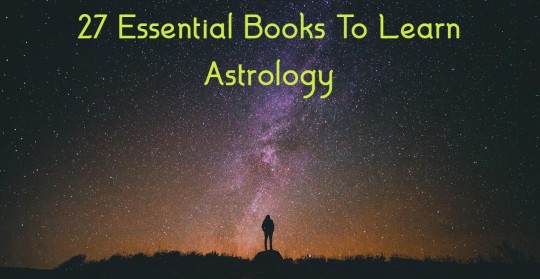
few people have come to me asking for recommended reading regarding astrology, and my answer is constantly changing, as it really depends on your level of knowledge. So here I’m going to share a few of my favorites off my Astrology bookshelves (yes, I have more than one shelf dedicated to astrology). This is a guide for the self-made, self-taught astrologer! - Our Astrologer, Cosmic Love
1.
For Beginners! Learn this name. Linda Goodman. This woman was my introduction to astrology. I read her book, Sun Signs, when I was 8 years old and it hooked me. This book came out in 1968 and was the first book on astrology to reach the New York Times Best-Seller list. Her writing is very clear to complete beginners, and entertaining to read even for more experienced astrology students. Her writing style reminded me of my grandmother, who gave me the book, so it was a very familiar-feeling and easy-to-read book.
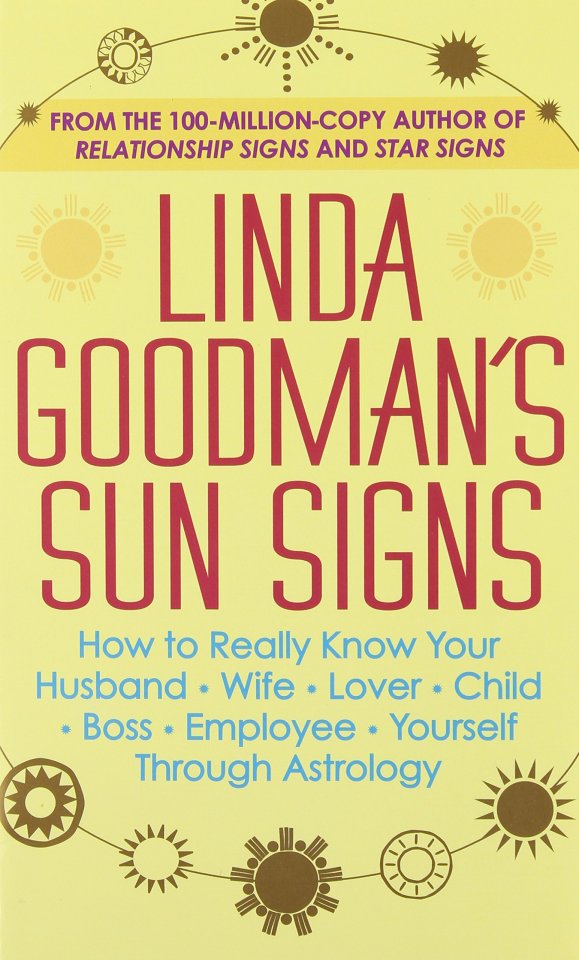
2.
Many of you will recognize the name “Llewellyn” if you’re involved in the metaphysical or magickal community in any way. They have a great introductory book on astrology, called Llewellyn’s Complete Book of Astrology: The Easy Way To Learn Astrology. It is a good resource for anyone learning astrology, and will give you a decent grasp of the basic factors involved in a chart.
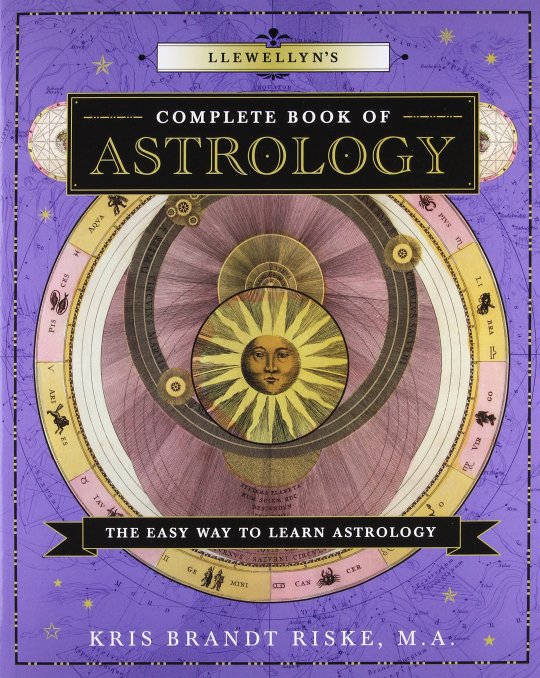
3.
Another great resource for any astrologer looking to learn is Astrology: Understanding The Birth Chart by Kevin Burk. This book has a lot of very useful information and is an excellent tool, especially for those interested in a more classical approach to astrology. This book is aimed less at modern astrology, and more at the carefully calculated science that ancient astrologers practiced in Greece.
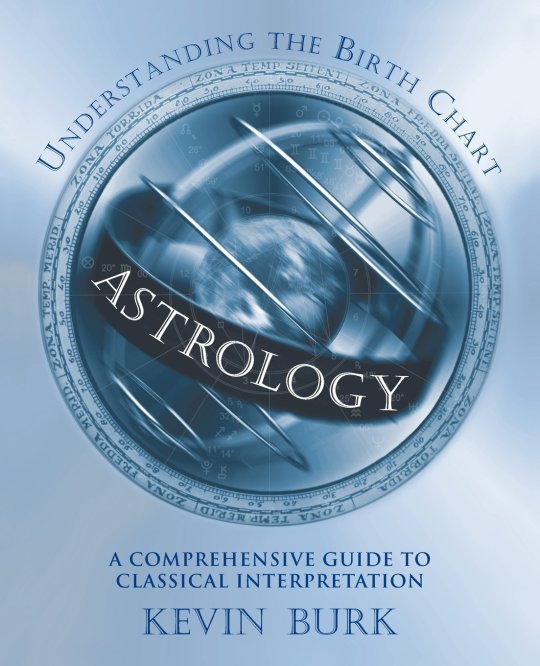
4.
One of my personal favorite textbook-like astrology books is A Spiritual Approach to Astrology, by Myrna Lofthus. This is an incredible book with a whole load of information useful to any level astrologer. It even includes a spiritual view on aspects and placements. This book dives into overviews of the planets, signs and houses as well as aspects from a karmic and spiritual perspective. If you’re looking for soul development, this is your astrology bible.
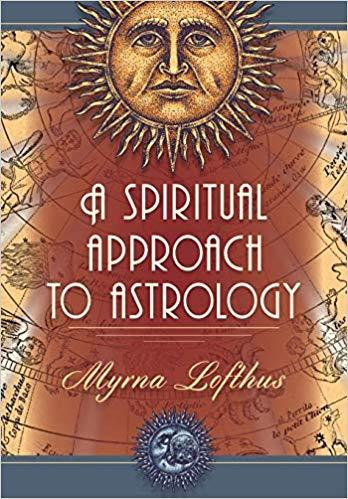
5.
I found this next one at a garage sale one day for $1 and just had to call it destiny. The Compleat Astrologer, by Derek & Julia Parker, was published in 1971, and was such a great find! It’s a beautifully illustrated collector’s book with lots of good information for the beginning astrologer. It goes through the signs one by one and includes a historical timeline of astrology and “The Astrological Ages of Man,” which the history buff inside me finds incredibly fascinating! Maybe I’ll do a blog post on astrological ages of man soon…
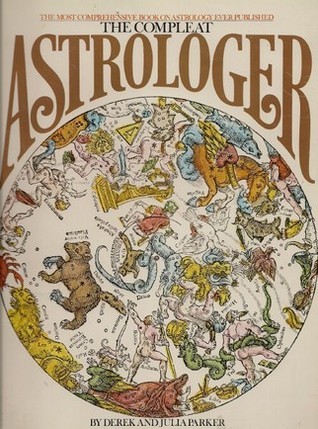
6.
One of my more recent favorites, The Astrology of Fate by Liz Greene, presents astrology from a somewhat classical perspective, yet also slightly modern in her psychological analysis. She uses Greek myths and ancient archetypes to describe the patterns of the planets involved in major life events and makes some very interesting connections! This book also gives many examples and may use technical jargon, so I recommend this book for after you’ve read the previous books listed.
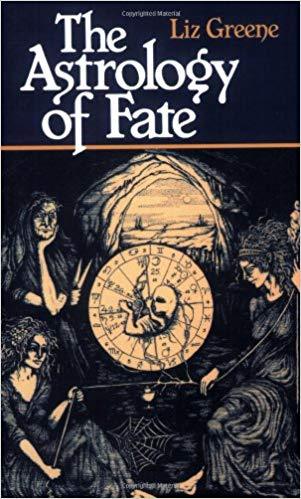
7.
I personally did not have as much interest in this book, but it is a good beginner resource, so I feel obligated to list it here. The Inner Sky by Steven Forrest was recommended to me by a friend years ago, and I didn’t connect very well with his writing style, but he does have great information here. Steven Forrest also has a whole series of astrology books for different levels of learning, so there is something for everyone with his work.
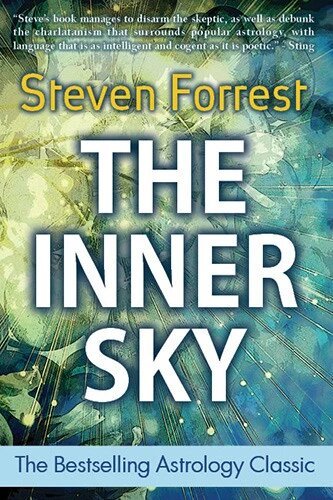
8.
An excellent book for anyone struggling to understand the concept of the houses and their themes, The Twelve Houses by Howard Sasportas is a wonderfully informative book specifically about the houses and the planets throughout the houses. This has some great information on aspect patterns involving houses as well.
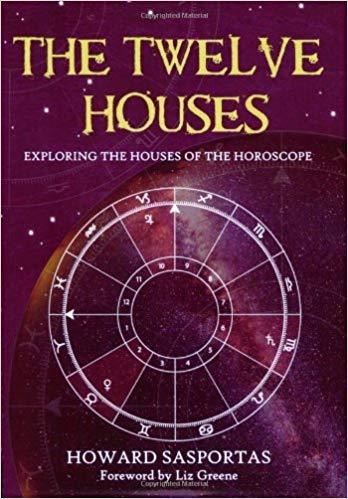
9, 10, 11.
There is a series of astrology handbooks by Frances Sakoian and Louis S. Acker, all of them very good resources. First, there’s The Astrologer’s Handbook, which focuses mainly on natal chart interpretation. The next one I would look into is Predictive Astrology, which mainly focuses on the meanings of transits. Then there’s another book on reading synastry charts (relationship astrology) called The Astrology of Human Relationships.
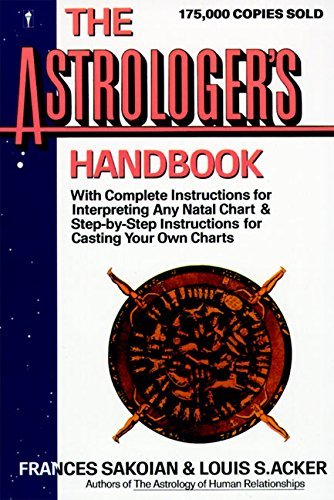
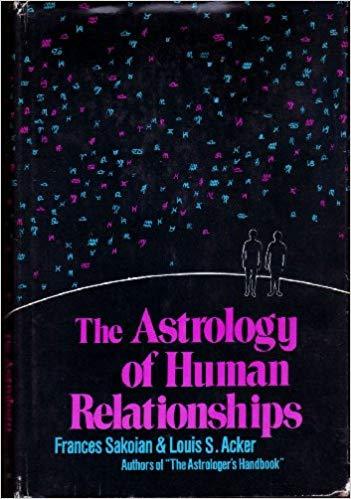
12.
If you’re interested in learning specifically about the ancient Hellenistic tradition of astrology, this list would not be complete without Hellenistic Astrology: The Study of Fate and Fortune by Chris Brennan. This book is a textbook for the ancient Hellenistic way of learning astrology, complete with chart examples and analyses. Chris Brennan offers astrology courses on his website as well and is the host of The Astrology Podcast.
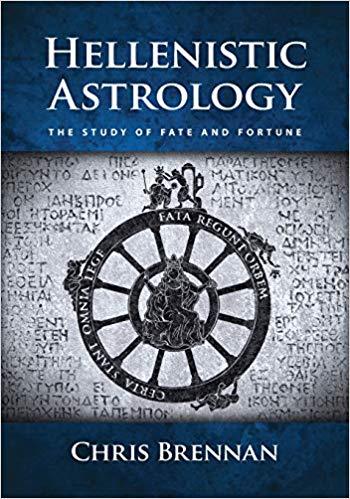
13.
Another one, Llewellyn’s Complete Book of Predictive Astrology: The Easy Way To Predict Your Future, is a good resource for beginners of predictive work. It has a lot of information and great example charts to help grasp confusing concepts.
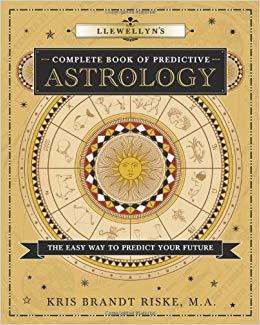
14.
Another great book is Predictive Astrology: The Eagle And The Lark by Bernadette Brady. This one has a huge amount of information stuffed into such a tiny package. It includes descriptions of the planets, signs and aspects and how they translate to predictive work. It also includes transits and progressions, as well as time maps, transit grids, and how to use them all.
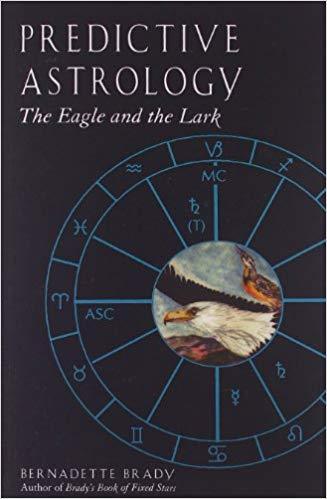
15.
One book I’ve worn out with predictive astrology is Planets in Solar Returns: Yearly Cycles of Transformation and Growth by Mary Fortier Shea. This book is specifically written for solar return charts, but has some very helpful information on how to translate a solar return into something that makes sense. This book includes placements as well as aspects.
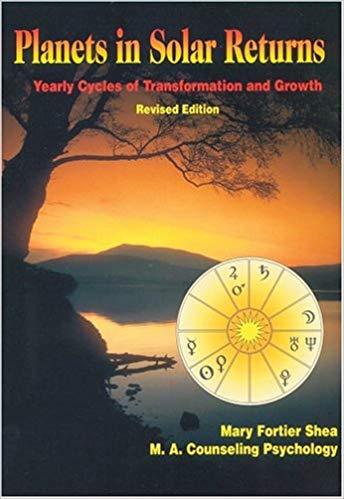
16.
Another great book on solar return predictions is The New Solar Return Book of Prediction by Raymond A. Merriman. This book goes into all kinds of detail regarding solar return charts and how to interpret them.
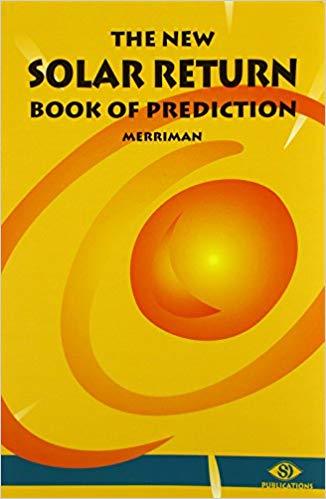
17.
For a great guide book on transits and progressions to natal planets and points, look for Roadmap To Your Future by Bernie Ashman. It contains symbolism of all of the planets, example charts, as well as a description of all of the transits and progressions.
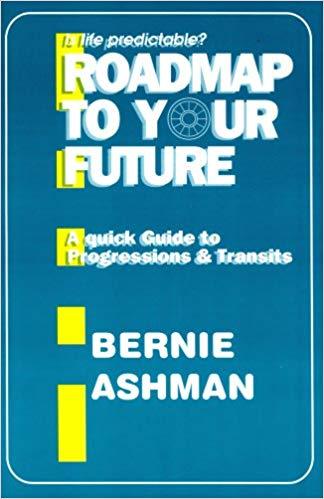
18, 19.
If you’re interested more in Vedic astrology, check out volumes 1 and 2 of Brihat Parasara Hora Sastra: A Compendium in Vedic Astrology. This massive collection of knowledge may be a little advanced for those just starting in astrology, but if you’re already familiar with the basics of Vedic astrology, go ahead and give it a shot!
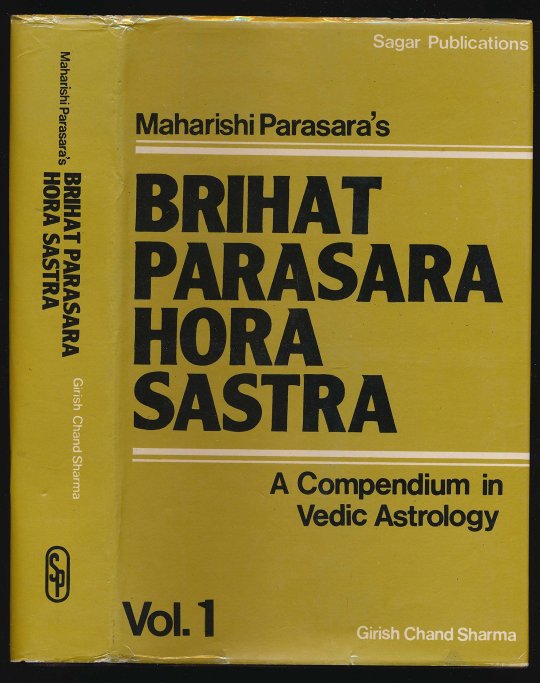
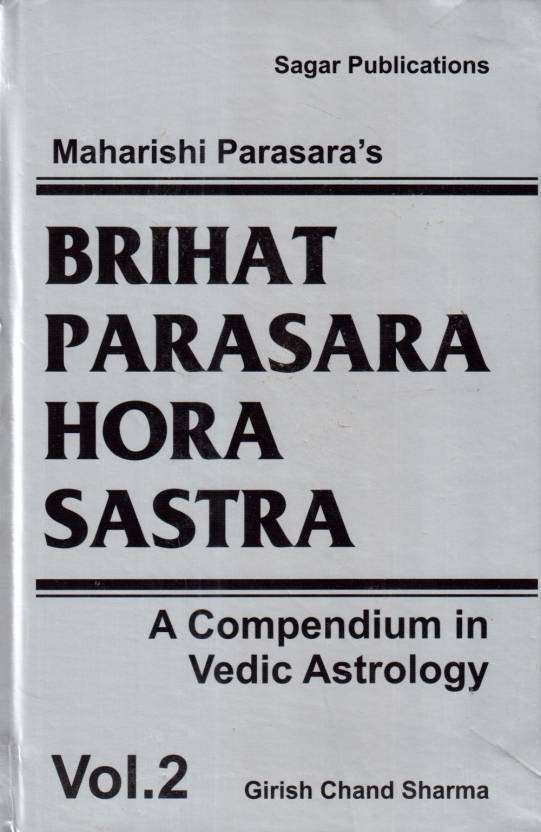
20.
For people interested in predicting events with astrology, I have a few books that have helped me! First, Predicting Events With Astrology by Celeste Teal. This book is textbook-like and very informative regarding predictive astrology. It goes over using decans as well, which is very important in getting specific information from a chart.
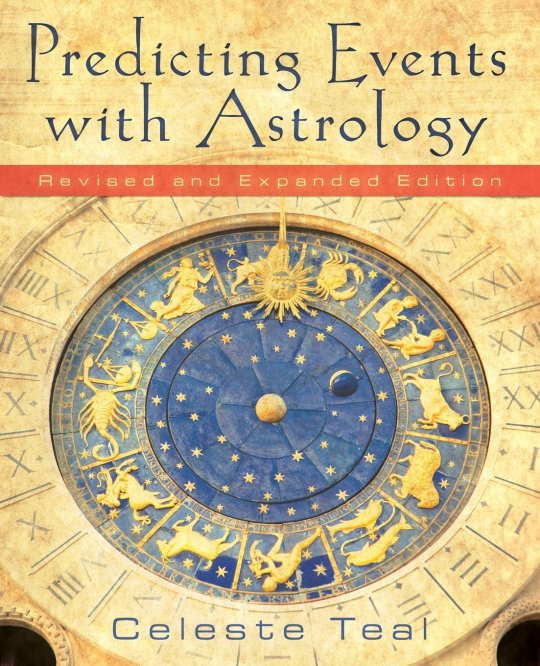
21.
For those of you interested in a karmic approach to astrology, Astrology, Karma & Transformation: The Inner Dimensions of the Birth Chart by Stephen Arroyo is a great informative read, and includes the karmic ideas of the outer planets and their transits. Also, any and all of the Karmic Astrology series by Martin Schulman. I still haven’t been able to get all of this collection, but I have a few and they’ve all been quite interesting to read.
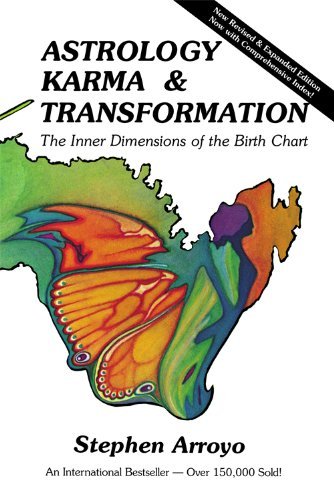
22, 23.
For anyone interested in the complex world of medical astrology, I have two books to recommend. First, Your Health in Your Horoscope: Introduction to Medical Astrology by Stefan Stenudd. This book is a great introduction, as it says in the title, but doesn’t get into extensive medical correspondences and specifics. I just ordered The Encyclopedia of Medical Astrology by Howard Leslie Cornell, and I’m so excited to see what information it holds for me!
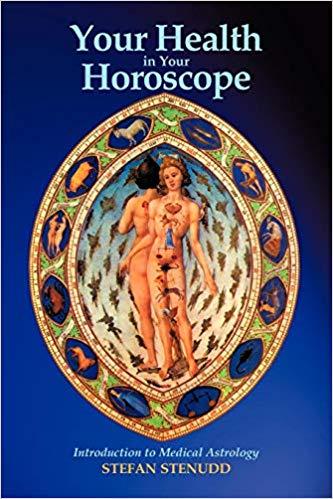
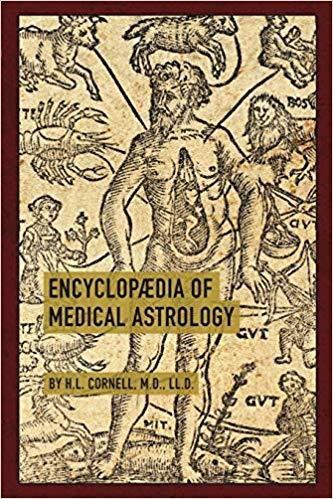
24.
Anyone who likes lists and textbook learning will love The Rulership Book by Rex E. Bills. This book is essentially a book of lists relating to astrology. It includes correspondence lists for each sign, planet and house, as well as a “dictionary” in the beginning to look up almost anything you can think of. I use this book ALL the time when writing my articles as well as for reference sometimes when I’m blocked reading a chart. I highly recommend this one; I feel it’s essential for any astrologer to have.
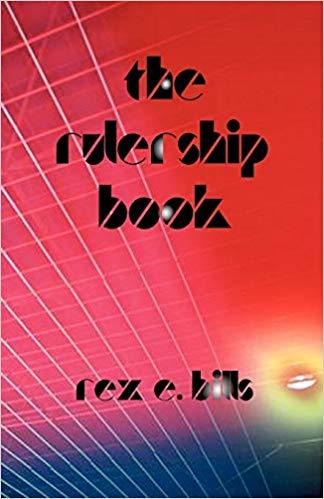
25.
For tarot readers out there, I just bought a book called Tarot and Astrology: Enhance Your Readings With The Wisdom Of the Zodiac by Corrine Kenner. This book is excellent for those with an understanding of tarot who are trying to learn astrology to help their readings. It has tables for reference as well as corresponding cards for each sign and planet placement. Very useful book already and I’ve barely even gotten a chance to read through it yet!
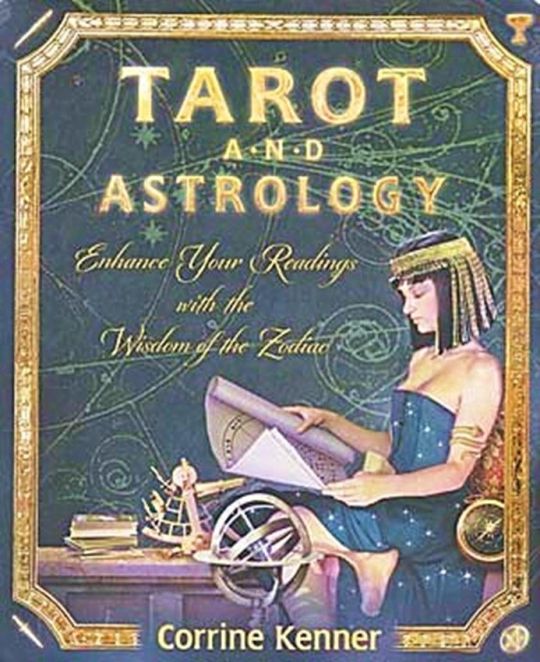
26.
Another book I just bought and am already enjoying is Pam Gregory’s You Don’t Really Believe in Astrology, Do You? I really love a good astrology book that gets technical with things. Pam Gregory is someone I’ve already been following on YouTube and online, and now I’m so excited to be reading her book!
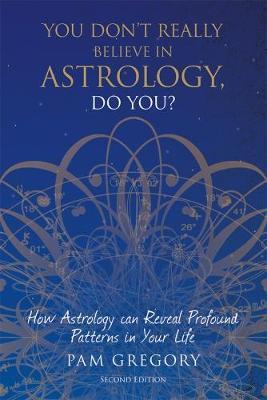
27.
For anyone looking for information on working with the Moon’s timing, Living By The Moon: A Practical Guide for Choosing the Right Time by Ute York is an excellent addition to your library! A must-have, in fact. This book packs all kinds of lunar information into a small package and isn’t astrologically complex at all, so any level of astrologer can use it!
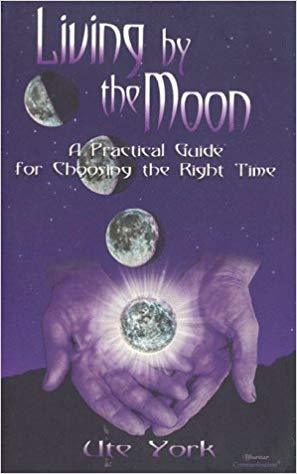
There are a few more on my shelf that are great books, too, but I think this is enough for a good, well-rounded reading list. I hope this list will be a helpful tool for your journey of self-discovery and healing, and I hope that you continue to learn the path of the stars!
Please consider supporting our astrologer by tipping her here!
#witchblr#witch#witchcraft#witches of color#witches of tumblr#wiccablr#wicca#wiccan#astrology#wiccans of color#wiccans of tumblr#pagan#paganism#pagans of color#pagans of tumblr#occult#new age#spells#books
226 notes
·
View notes
Note
For the hobby/career ask, 5 and 9 for Sophie and/or Ariadne?
Why not both?
5. Did they know what job they wanted to have when they were younger? How did their opinion change over time?
- Sophie always thought she'd be a shopkeeper or bookshop girl like her mother. But in her teens, especially when growing up under Ariadne's tutelage and also hearing her friends (especially Laure, Marie-Fatine, and the boys) talk, she began thinking about having a career perhaps in diplomacy. After conferring with her father, Sophie got his blessing to pursue a degree in languages so that she could work in consular affairs.
As for Ariadne, she had no plans at all until she arrived in Paris. She never thought that she'd find herself as tutor to Sophie, and as an assistant to Victoria Calamy. Since options for girls were limited in 1842, she decided to pursue a career in art and asked Victoria if she could also have a tutor to get better in drawing and painting in addition to learning about history, geography, politics, and science. She eventually makes a career in illustrating textbooks while having enough paintings to have a modest gallery of her own.
9. Did your OC keep their hobby after getting a job, or did they lose interest/time?
-Sophie's hobbies are more into art and music, and she would have set those aside as a student if not for her longtime friend (and eventual partner) Julien. She and Julien bond over these things, so she is enthused about keeping up her hobby. She also frankly doesn't really want to end up like Eponine, who she sees as throwing herself into work and family, with little time to develop anything else. Of course she isn't as aware about the minutiae of her mother in law's life, but as a teen what she sees is a very busy and frenetic aunt figure who never seemed to have time to do anything creative.
Ariadne's hobby becomes her job. It's infinitely more rewarding than being a tutor or secretary.
2 notes
·
View notes
Text
Ribbons of Scarlet: A predictably terrible novel on the French Revolution (part 1)
Parts 2, 3, 4 and 5.
Q: Why is this post in English? Isn’t this blog usually in French?
A: Yes, but I can’t bypass the chance, however small, that someone in the book’s target audience might see and benefit from what I’m about to say.
Q: Why did you even read this book? Don’t you usually avoid bad French Revolution media?
A: My aunt left the book with me when she came for my defense last November. I could already tell it would be pretty awful and might not have read it except that I needed something that didn’t require too much concentration at the height of the Covid haze and I — like most people who insisted on finishing their doctorate despite the abysmal academic job market — have a problem with the sunk cost fallacy, so once I got started I figured I might as well find out just how bad it got.
Q: Don’t you have papers to grade?
A: … Next question.
Q: Aren’t you stepping out of your lane as an historian by reviewing historical fiction? You understand that it wasn’t intended for you, right?
A: First of all, this is my blog, such as it is, and I do what I want. Even to the point of self-indulgence. Why else have a blog? Also, I did receive encouragement. XD;
Second, while a lot of historians I respect consider that anything goes as long as it’s fiction and some even seem to think it’s beneath their dignity to acknowledge its existence, given the influence fiction has on people’s worldview I think they’re mistaken. Besides, this is the internet and no one here has any dignity to lose.
Finally, this is not so much a review in the classic sense as a case study and a critical analysis of what went wrong here that a specialist is uniquely qualified to make, not because historians are the target audience, but because the target audience might get the impression that it’s not very good without being able to articulate why. To quote an old Lindsay Ellis video, “It’s not bad because it’s wrong, it’s bad because it sucks. But it sucks because it’s wrong.” Or, if you prefer, relying on lazy clichés and adopting or embellishing every lurid anecdote you come across is bound to come across as artificial, amateurish and unconvincing.
This is especially offensive when you make grandiose claims about your novel’s feminist message and the “time and care” you supposedly put into your research.
I also admit to having something of a morbid fascination with liberals creating reactionary media without realizing it, which this is also a textbook example of (if someone were to write a textbook on the subject, which they probably should).
With that out of the way, what even is this book?
The Basics
It’s a collaboration between six historical novelists attempting to recount the French Revolution from the point of view of seven of its female participants. One of these novelists is in fact an historian herself, which is a little bit distressing, given that like her co-authors, she seems to consider people like G. Lenotre reliable sources. But then, she’s an Americanist and I’ve seen Americanists publish all kinds of laughable things about the French Revolution in actual serious works of non-fiction without getting called out because their work is only ever reviewed by other Americanists. So.
Anyway, if you’re familiar with Marge Piercy’s (far superior, though not without its flaws) City of Darkness, City of Light, you might think, “ok, so it’s that with more women.” And you might think that that’s not so bad of an idea; Marge Piercy maybe didn’t go all the way with her feminist concept by making half the point of view characters men (though I’d argue that the way she frames how they view women was part of the point). It’s even conceivable that if Piercy had wanted to make all the protagonists women her publisher would have said no on the grounds of there not being a general audience for that. It was the 1990s, after all.
Except the conceit this time is they’re all by different authors, we have some counterrevolutionaries in the mix, and instead of the POV chapters interweaving, each character gets her own chunk of the novel, generally about 70-80 pages worth, although there are a couple of notable exceptions. We’ll get to those.
It’s accordingly divided as follows:
· Part I. The Philosopher, by Stephanie Dray, from the point of view of salonnière, translator, miniaturist and wife of Condorcet, Sophie de Grouchy, “Spring 1786” to “Spring 1789”; Sophie de Grouchy also gets an epilogue, set in 1804
· Part II. The Revolutionary, by Heather Webb, from the point of view of Reine Audu, Parisian fruit seller who participated in the march on Versailles and the storming of the Tuileries, 27 June-5 October 1789
· Part III. The Princess, by Sophie Perinot, from the point of view of Louis XVI’s sister Élisabeth, May 1791-20 June 1792
· Part IV. The Politician, by Kate Quinn, from the point of view of Manon Roland, wife of the Brissotin Minister of the Interior known for writing her husband’s speeches and for her own memoirs, August 1792-(Fall 1793 — no date is given, but it ends with her still in prison)
· Part V. The Assassin, by E. Knight, which is split between the POV of Charlotte Corday, the eponymous assassin of Marat, and that of Pauline Léon, chocolate seller and leader of the Société des Républicaines révolutionnaires, 7 July-8 November 1793
· Part VI. The Beauty, by Laura Kamoie, from the point of view of Émilie de Sainte-Amaranthe, a young aristocrat who ran a gambling den and who got mixed up in the “red shirt” affair and was executed in Prarial Year II, “March 1794”-“17 June 1794”
An *Interesting* Choice of Characters…
Now, there are some obvious red flags in the line-up. I’m not sure, if you were to ask me to come up with a list of women of the French Revolution I would come up with one where 4/7 of the characters are nobles/royals — a highly underrepresented POV, as I’m sure you’re all aware — but fine. Sophie de Grouchy is an interesting perspective to include and Mme Élisabeth at least makes a change from Antoinette? And though the execution is among the worst (no pun intended) Charlotte Corday’s inclusion makes sense as she is famous for doing one of the only things a lay audience has unfortunately heard of in association with the Revolution.
Reine Audu is actually an excellent choice, both pertinent and original. Credit where credit is due. Manon Roland and Pauline Léon are not bad choices either in theory, but given the overlap with Marge Piercy’s book, if you’re going to do a worse job, why bother? The inclusion of Sophie de Grouchy, while, again, not a bad choice, also kind of makes this comparison inevitable, as another of Piercy’s POV characters was Condorcet.
But Émilie de Sainte-Amaranthe? I’m not saying you couldn’t write an historically grounded and plausible text from her point of view, but her inclusion was an early tip-off that this was going to be a book that makes lurid and probably apocryphal anecdotes its bread and butter.
The absolute worst choice was to make Pauline Léon only exist — at best — as a foil to Charlotte Corday. (It turns out to be worse than that, actually. She’s less of a foil than a faire-valoir.)
Still, why does no one write a novel about Simone and Catherine Évrard (poor Simone is reduced to “Marat’s mistress” here, not just by Charlotte Corday, which is understandable, but also by Pauline Léon) or Louise Kéralio or the Fernig sisters or Nanine Vallain or Rosalie Jullien or Jeanne Odo or hell, why not one of the dozens of less famous women who voted on the constitution of 1793 or joined the army or petitioned the Convention or taught in the new public schools. Many of them aren’t as well-documented, but isn’t that what fiction is for?
Let’s try to be nice for a minute
There are things that work about this book and while the result is pretty bad, I think the authors’ intentions were good. Like, who could object to the dedication, in the abstract?
This novel is dedicated to the women who fight, to the women who stand on principle. It is an homage to the women who refuse to back down even in the face of repression, slander, and death. History is replete with you, even if we are not taught that, and the present moment is full of you—brave, determined, and laudable.
It’s how they go about trying to illustrate it that’s the problem, and we’ll get to that.
For now, let me reiterate that while I’m not a fan of the “all perspectives are equally valid” school of history or fiction — or its variant, “all *women*’s perspectives are equally valid” — and there are other characters I would have chosen first, it absolutely would have been possible to write something good with this cast of characters (minus making Charlotte Corday and Pauline Léon share a section).
The parts where the characters deal with their interpersonal relationships and grapple with misogyny are mostly fine — I say mostly, because as we’ll see, the political slant given to that misogyny is not without its problems. These are the parts that are obviously based on the authors’ personal experience and as such they ring true, if not always to an 18th century mentality, at least to that lived experience.
Finally, there are occasionally notes that are hit just fine from an historical perspective as well. The author of the section on Mme Élisabeth doesn’t shy away from making her a persistent advocate of violently repressing the Revolution. Manon Roland corresponds pretty well to the picture that emerges from her memoirs even if the author of her section does seem to agree with her that she was the voice of reason to the point of giving her “reasonable” opinions she didn’t actually hold.
I should also note that while the literary quality is not great, it’s not trying to be great literature and in any case, on that point at least, I’m not sure I could do better.
Ok, that’s enough being nice. Tune in next time for all the things that don’t work.
34 notes
·
View notes
Text
No Spell Needed
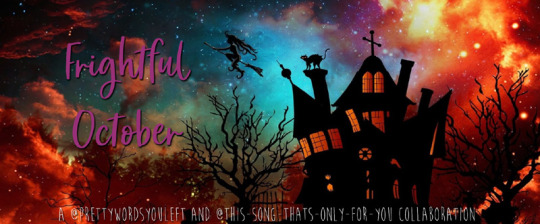
Summary: Jinyoung had learned early on that you were a witch. But even he was surprised when you tried to cast a love spell on him.
Pairing: Park Jinyoung x reader
World: Love Spell universe
Genre: witchcraft au / fluff
Warnings: none
A/N: I have actually lost count how many times it’s been requested that I return to last year’s Spellbound story Love Spell. And although I’ve already written a Hogwarts au with Jinyoung this week, since it’s the 2019 version of Spellbound, we’re here revisiting an oldie but a goodie.
I don’t think it’s entirely necessary to read Love Spell first, but I do recommend it. You can read Love Spell HERE
Word count: 3091
[Frightful October Masterlist]

You were so unlike Jinyoung that he was instantly drawn to you.
Whilst he was practical, steadfast and logical, you were unrealistic and quite often off with your thoughts in another dimension. In fact, after a month of friendship with you, Jinyoung had even contemplated if you were from another world.
It was then when he found out you were a witch.
Not that it was something you were announcing for everyone to hear, no, you hadn’t actually told him you were one. And before he met you, Jinyoung had been the type of person to believe such things only existed in books. Fantastical novels that were created for entertainment purposes and not written from true anecdotes of people who had lived with magic for centuries. Yet here you were, carrying around a spare wand in your pencil case. And when you weren’t paying enough attention to your studies in the library one evening as you dozed off over your laptop, your bag had slipped onto the ground from your lap and spilled out its contents, including what appeared to be a very convincing witches manual.
It would be just like you to carry it around like that.
Of course, Jinyoung didn’t believe in you being a witch immediately. Even if things did connect, he wasn’t about to admit that everything he knew was a lie and that next he’d be meeting a vampire. He needed more proof than a book that looked as if it had been handed down the family line over generations and a wand in your pencil case. Some people had peculiar habits and you could have a hidden interest in bookbinding and making fake wands for all Jinyoung knew. He hadn’t known you before university, and since then, he couldn’t quite put his finger on pinning down your personality any further than being slightly eccentric.
One of the many charms that had attracted him to get to know you better.
It was when you were watching a movie with him that he found out that you were an actual witch. Too engrossed in the film than your surroundings, when the movie got to a part that captured your heart, you weren’t prepared to move on from it right away. With a small chant under your breath, the projected film on the large cinema screen instantly moved back, replaying the scene. Whilst it didn’t seem to bother the few others in the room, thinking it was a glitch, Jinyoung had heard you. He was certain you had spoken some foreign language quietly to yourself, then the movie jumped back. And the satisfied expression on your face only left him staring at you, perplexed.
He remained that way until the movie was finished.
“Did you enjoy it?” you asked happily, getting to your feet and heading out into the foyer. Jinyoung didn’t answer, still trying to wrap his brain around what had happened. You reached out for his wrist then, and he stared at you wide-eyed, your smile draining away along with the colour from your face.
“Oh, uh– I’m not feeling well!” you excused hastily, dashing off to the bathroom and left him waiting fifteen minutes for your return.
When you stepped out into the sunny Sunday afternoon together, Jinyoung proposed a question that sounded unfathomable for him to ask. “Are you a witch?”
“Ha-ha, do you uh, believe in them?”
“I believe in you to tell me the truth,” he responded and like a deer caught in headlights, you froze and then suddenly began to move, well, your mouth anyway.
“Did you hear the enchantment?! Oh, I’m sorry, it’s just that I got really excited and it’s so easy to do it! I have a bad habit of rewinding to my favourite parts at home too and my mother is always scolding me for it and-”
“You’re a witch?” he repeated and you nodded once. Jinyoung took in a deep breath and then nodded as well. “Okay, I believe you.”
And just like that, you settled right back down.
Although you would tell Jinyoung now and then of your skills, and he would listen to you, he would often chide you for not using your witchcraft on a productive level. “Are there any concentration spells, Y/N?”
You perked up immediately, bobbing your head up and down energetically. Arching an eyebrow at you and then pointing to your term paper notes across from him, your bubbly mood dampened down. “Maybe you should brew one for yourself.”
“I’ll get this done, don’t you worry! I’m just a little preoccupied researching something else.”
“Which is?” he wondered, not lifting his eyes from the textbook he had returned to. Most of the time, the things you would tell him would only leave him confused and since he had no understanding of the wizardry outside of Harry Potter and what little he had learned from you, Jinyoung wasn’t very forthcoming about learning of it. After all, he wasn’t the one with the powers here, and if he learned more about potions and enchantments, he would no doubt wish to perform them himself.
Which, he kind of had no ability to do so.
And that’s why he left you to your craft alone, supportive, but not active. He often got a headache trying to keep up anyway.
“Oh, it’s just something my Grandmother is helping me with,” you answered vaguely and he nodded, going back to his studies where newts and rabbit feet weren’t something he had to consider.

It was a month later when Jinyoung became concerned with what you were concocting. You had become rather frazzled – more than usual – and shut off from him. Your usual banter was missing from every situation, and you looked far too exhausted for a first-year college student.
Your exhaustion answered some of his questions.
“Love spells?” he murmured to himself as he glanced at his recent history search, glancing at you slumbering on the library table, your breathing steady and mind unaware of what clue you had given him. Smiling, he cleared it from his browser, waiting over several weeks for some tell-tale sign that you were trying to give him an elixir of some sort. But he couldn’t tell the difference at all.
Feeling a little miffed that you weren’t trying to work your magic on him; Jinyoung turned his attentions back to the upcoming calculus exam. It was his least favourite subject and yet it was one he shared with you, hoping due to your avid potion brewing that your neglected studies would send you his way.
He was right, the pair of you studying on his bed until you your head lolled onto his shoulder, now asleep with the even tone of his explanation. Smiling, he watched you for a moment before resting his head on yours.
Jinyoung was almost asleep when he heard you murmuring under your breath. Blinking away his dreams, he listened to your words. “Must get his blood.”
“Who’s blood?” he asked you, hoping you would reply.
“Jinyoung’s,” you breathed, nestling into his shoulder further. “For the spell.”
“You need my blood?”
“Mm, it has to work. The book said it would.”
Glancing at your bag on the floor, Jinyoung noticed it looked heavier than usual. Sliding himself out from his position on the bed, he made sure you were resting comfortably before tiptoeing over to his desk. Reaching down for your bag, he watched your sleeping form intently whilst retrieving what felt like a thick textbook.
He had been right, though it appeared to be one for witches and warlocks only. Curiosity beckoned him forth and after staring at the leather-bound cover, he opened the book.
It was more than he could have ever expected.
There was a love spell for everything, from making someone love you so much that they couldn’t see the rest of the world to removing memories of past lovers; this book was no joke. The spells were well versed, scripted in the finest handwriting and illustrated with rather in-depth diagrams. He was amused by the notes in the margins from past witches, explaining what happened if the ingredients were off by even a smidgeon.
If anything, the book was highly entertaining and by the time he found the spell you were working on, it was early morning.
“Oh no,” he heard breathed from across the room and Jinyoung cocked his head to the side, taking in your dishevelled appearance.
He then nodded. “Oh no, indeed.”
“How did you find that?”
“You mentioned it in your sleep to me,” he told you pointedly, flipping the page for effect. Admittedly, Jinyoung was feeling anxious, wondering if you were actually serious enough to go ahead with making your talisman. He had studied a great deal of your realm overnight and one thing he had learned quickly into the book was the risks that were involved. He couldn’t believe you were this desperate.
“Jinyoung, you shouldn’t be reading this,” you mentioned as you attempted to retrieve the spellbook but he pressed it back down into the table.
“And you should? These seem pretty intense.”
He stared up at you, wondering just how clueless you could be. He loved you; he had figured that out long ago. And whilst he wasn’t all over you like some college couples, Jinyoung had believed he showed you enough affection for you to pick up the hint.
Clearly not, since you needed his blood apparently.
Now feeble, you lowered your gaze from his. “I’m sorry if you just give me the book you won’t have to worry about it again.”
“Have you actually tried these?” he questioned, sighing when your silence answered him. He chuckled dryly. “Y/N, some of these require things from me!”
“Like hair,” you agreed and Jinyoung connected the moment from the other week when you had claimed there was a bug in his hair, yanking out a few strands in the process. You were remorseful, and yet he couldn’t help but continue, wanting to see just how far you were willing to go.
“Or worse, there’s one here asking for my blood! Would you have gone that far?” Gesturing to the book, he feigned concern when you coughed. “You need my blood?!”
“I didn’t want to hurt you. Just give me the book, Jinyoung and I’ll go home.”
He tried not to smile. “And do what; concoct more spells to make me fall in love with you? Unbelievable!”
His posture changed when tears welled in your eyes, his heart tightening with your emotions. “I promise I’ll stop. It hasn’t worked so far, so it’s pointless to ask you to give me anything more.”
“You love me that much, huh?” he asked softly, wanting to reach out and confess that he felt the same. But he knew with how charged the atmosphere was with your current mortification, that you wouldn’t believe a word he said. So he unbuttoned the cuff of his shirt, sliding it up his forearm. “Just blood?”
“What?” You head snapped up as you stared at him, and he proclaimed how ridiculous this was, just for your benefit. Holding out his arm, you instantly grew hopeful. It took all of Jinyoung’s effort to not kiss you right there and then. “Why are you offering?”
“I want to see if it works, if you can make me fall in love with you with a mere spell.”
“But what if it really works? What will you do then?”
“Be madly in love with you, isn’t that obviously the goal here?” He was getting impatient with how hesitant you were being, groaning at your unhurried movement. Reaching for a pack of darning needles on his desk he had found earlier, he pricked the top of his index finger. You gasped and he gestured for you to make a move, in which you finally did. He shouldn’t have been as surprised as he was to see the prepared talisman you pulled out of your bag, guiding his finger onto it. He watched as you shared your own blood on the yellow parchment too, reaching out for the finger you had now abandoned with your high interest on the paper, sucking away at it to stem the blood flow.
Maybe it had some power, after all, he was feeling rather giddy from the reaction he had to your bleeding finger.
Uttering some words with your hand on the talisman, Jinyoung looked between you and the spell, completely unimpressed. He knew it was because he was already in love with you, but he had been somewhat interested to see if there would be even the slightest of magic to occur in front of him.
“Is that it?”
“Do you feel any different?” you asked, hopeful and Jinyoung shrugged.
“Hm, let me see. My fingertip is tingling, should it be?”
“Honestly, Jinyoung, I knew I shouldn’t have listened to you just now, after all-”
Your disappointment was too much to handle and he reached out to encircle your waist, bringing you into his lap immediately. Gazing into your eyes, he sighed softly as he reached to run a thumb over your lower lip. He wanted to kiss you more than anything now.
“Are you sure the spell didn’t work?” he murmured, heart racing with how quickly you succumbed to the lightest of touches. If all this spell work didn’t already show him enough, Jinyoung was certain you were just as crazy about him as he was for you. “You’re so freaking adorable, you know that? How long have you been trying to make me fall in love with you?”
“For several months now,” you admitted slowly and Jinyoung was surprised. He hadn’t expected it had been so long. For a moment, he wondered just how many spells you had cast upon him. And then he smiled, soaking you in as you watched him carefully.
Gingerly, you cupped his cheek within your hand and he nuzzled into it, delighted to finally see you genuinely smile.
“It’s worked.”
He laughed. “No, it didn’t.”
“What?” You were confused, especially when his statement didn’t match the gentle kisses he left upon your wrist. Your smile disappeared entirely. “Don’t mess with me.”
“I know exactly why your little love spells haven’t worked, not a single one of them.”
You rolled your eyes, far too frustrated by his hot and cold game with you. He gripped onto you, shaking his head at your moment of flight.
“I can’t do this right now, Jinyoung. I think we’ve both had enough of all of this. I’ll just get on my way-”
“A spell can’t work on something that’s already naturally happened, right?” he stated, having read so in the book earlier on. Still, he wanted the clarification from you, holding onto your chin and seeking out your gaze once more.
“Why would someone use a spell if they already love them? Jinyoung, I-”
“Exactly what I want to know. Why were you trying to make me fall in love with you, when I already am?”
He didn’t allow your next sentence to form, kissing you immediately. His lips pressed to yours, languidly moving against your frozen ones, trying to thaw away the ice and bring you into the moment with him. As soon as your eyes closed, passion erupted and he was certain this moment would replay over and over in his thoughts for the rest of his life.
You poked him in the chest when the kiss was over. “You, you like me?”
“Why do you think I invested so much of my time with you? I was instantly attracted to you.”
“So all this time…?”
Jinyoung nodded, smug with satisfaction in fooling you. “You were so blind to it that for a while I thought you would only see me as your friend forever. But then when I caught wind of your love spell research, I started to find myself curious if it was more than one-sided.”
“Wait a minute, you knew?!”
“Of course, I did. You might be a witch but you’re not very good at hiding yourself, at least not from me.” Ignoring the doubt he had momentarily put weight into, he moved on with evidence about using his laptop that one time.
“You let me suffer all this time, completely desperate to find a way for you to love me and you already did?!”
“I wanted to see how far you were willing to go,” he answered, following you after your sudden departure from his lap, getting up off the chair and approaching you with another smirk. “I have to admit, I wasn’t expecting you to get this invested. I’m honoured, you much really love me, Y/N.”
“I cannot believe you, Park Jinyoung!”
“And I’m not sure I trust you with all this magic either,” he admitted, casting his eyes towards the book he had perused all night. “But there is one thing I’m glad about.”
You stared at him apprehensively and Jinyoung felt his chest swell with love for you. Eyeing your mouth, he moved even closer to you. “Your lips tasted as sweet as I hoped they would.”
He kissed you again, smiling when you sighed in content against him, wrapping your arms around his waist. If Jinyoung had any magical abilities, he was hopeful it laid within his mouth. You definitely looked under his spell when you pulled away after two more kisses, giggling all of a sudden.
“You love me. I don’t have to smite anyone for taking you from me after all.”
“Oh my god,” he muttered, his own joy drying up at your ridiculousness. Jinyoung shook his head a few times. “I must be crazy to be in love with you, but I’d be even crazier without you.”
You beamed a bright smile up at him and Jinyoung didn’t care anymore if you were that eccentric girl who had her head up in the clouds. Or the one who dedicated yourself to things that he wouldn’t prioritise first. You were a whirlwind of the unexpected, and he was excited to see what you would come up with in the future. He faltered then, staring down at you firmly. “Just promise me one thing.”
You surprised him with a brief kiss, now grinning giddily up at him. Jinyoung almost forgot what his train of thought was then. Maybe the talisman did have some power.
Though he was certain it was just your effect on him.
“What?” you prompted.
“No more spells, let’s just let our love grow naturally, okay?”
_________________
All rights reserved © prettywordsyouleft
[GOT7 Masterlist] | [Main Masterlist] | [Request Guidelines]
#got7creators#kwritersworldnet#pwyl; frightful october#frightful october#frightful october spellbound#got7#got7 imagines#got7 scenarios#got7 fiction#got7 fanfic#got7 fluff#got7 au#park jinyoung imagines#park jinyoung#park jinyoung scenarios#park jinyoung fiction#park jinyoung fanfic#park jinyoung fluff#park jinyoung au#jinyoung imagines#jinyoung scenarios#jinyoung fiction#jinyoung fanfic#jinyoung fluff#jinyoung au#kpop imagines#kpop scenarios#kpop fiction#kpop fanfic#kpop fluff
203 notes
·
View notes
Text
BoAB Meta Essay 1: 5 W’s
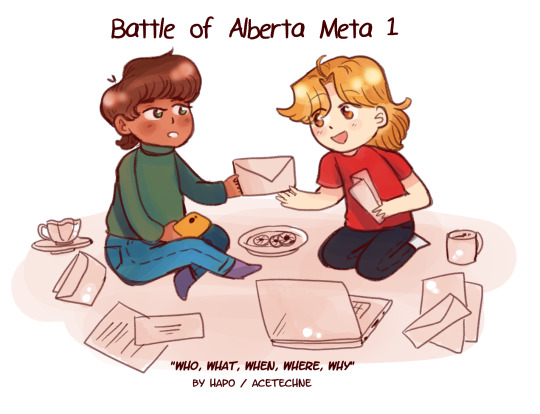
Hello and welcome to this strange and silly yet semi-serious project of mine. Battle of Alberta is a Hetalia-inspired comic and ask blog following the adventures and mishaps of rival Canadian cities Edmonton and Calgary. I started this blog in 2018, though I first created the characters a decade ago in 2010 as fan characters for the I Am Matthewian Project. This little illustrated essay is just an introduction to me, my orientation towards this project, and why the heckaroonie I’m doing this.
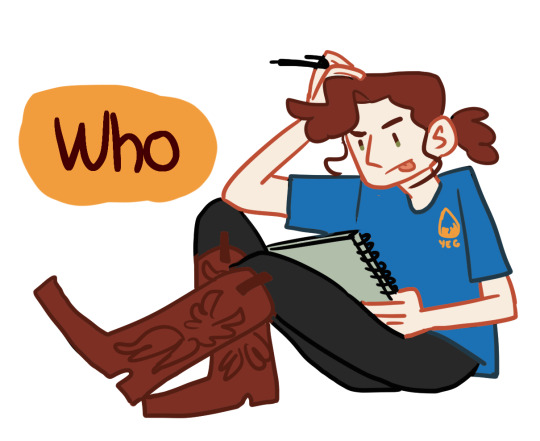
Who: About the Author
My name is Hapo. As I’m writing this, I’m a graduate student at the University of Toronto and hope to have that wrapped up in the spring of 2020. Though I’ve been dragged around the continent for one reason or another (usually the result of a gravitational pull of a university town), I consider Edmonton to be my hometown and fully acknowledge and relish in the resulting bias I was raised with. I am a 3rd or 5th generation Albertan depending on how you count it and a settler on Treaty 6 territory. My educational background is in Classics, Ancient Societies and Cultures, Linguistics, Archives, and Museum Studies; my academic interests kind of revolve around the construction of culture and memory. I also tend to enjoy challenging stereotypes and misconceptions and disturbing ideas about seemingly hierarchical top-down, center-periphery relationships. Most of all, I love drawing satirical comics of varying degrees of silliness and sharing them with people. I currently use a Wacom tablet and Clip Studio Paint for my comics.
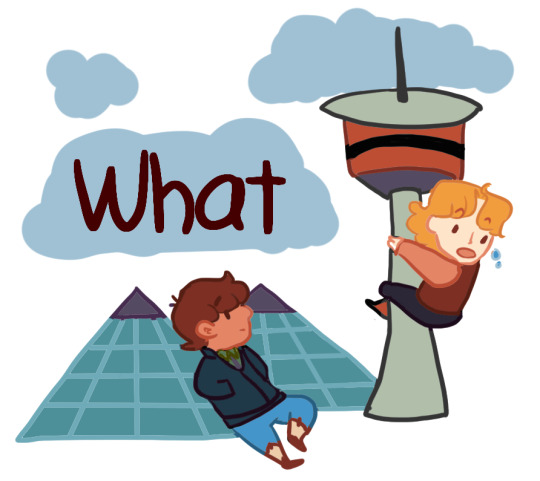
What: Writing About Cities
I chose to focus on cities because it’s the kind of granularity I like to write about; I find writing from a national perspective too broad and difficult to rationalize from my own experience and while I’ve written from the provincial level in the past, I most enjoy the level of nuance and every day information that comes from living in and studying cities. My other comic, @athensandspartaadventures, kicked off my love of writing city-states, and my travels to other Canadian cities over the course of my post-secondary studies fueled my desire to learn more about municipal histories.
Listening to the news, joining protests, and navigating my way through adulthood pushed me to learn how to participate politically on a local level as well. The 10th Annual Hurtig Lecture at the University of Alberta featuring mayors Don Iveson and Naheed Nenshi on the future of cities is an event I feel shaped my attitude towards cities in general, but it also encouraged me to look at the cities I knew with a different, optimistic perspective. I want to inspire readers to understand their own municipalities as complicated, messy, and in need of love and support from the inside.
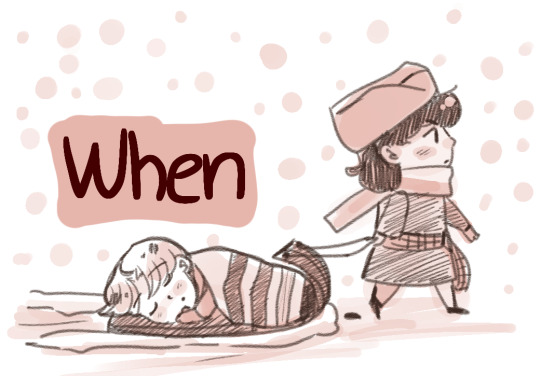
When: Then and Now
While I wouldn’t define myself as a historian per se, I tend to look at many things through a historical lens. The history is an integral part of the story that shapes these characters, and while I don’t mean to use history to justify one narrative over others, I do have to make some decisions and choices about the stories that I tell and the characters I am building for consistency’s sake.
What sets interpretations of personifications apart is the author’s own experience, and at the end of the day it’s my interpretations, gut reactions, and personal experience that colour my work and my view of history. I recognize that I have my own biases and ways of thinking that are rooted in my view of the world as it is today, and I also recognize that those understandings can change. This blog is less a chronicle of one monolithic view of history and more a chronicle of my own perspective and growth.
During this project, I won’t be shying away from certain historical periods and certainly not modern politics. That said, I also will not be answering asks that are deliberately politically or historically insensitive, nor will I be going out of my way to render explicit periods of great pain or violence. My own discretion is not perfect, but I will be using it as I see fit and trying my best to be responsive about it.
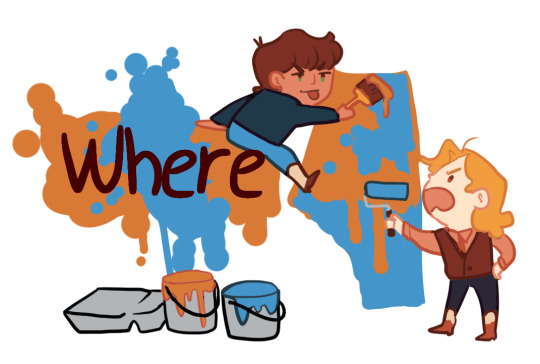
Where: Oil Country
Gavin Crawford probably says it best in his Wild West miniseries satirizing a wide cast of provincial stereotypes: “What do I like best about Alberta? It’s where I live.” My family settled in Alberta before it was a province and while I was not born there originally, it is where I would always leave from and come home to, it was where I went to school and kept all my things, it was where I formed my fond childhood memories and my political attitudes as an adult, and whether I was living in sub-rural or suburban Alberta or across the continent from it, it was always Where I Lived and Where I Would Go if I could click my heels three times.
I was born in the economic fall out after the NEP reinforced divisions with the rest of the country. I was in grade school while Klein was handing out prosperity bonuses at the height of the boom when we still couldn’t afford textbooks from after the fall of the Soviet Union let alone teacher’s salaries. I didn’t really understand the ire we drew from the rest of the country and the world until I joined the I Am Matthewian Project in high school, and suddenly I had to make a lot of decisions about my own political identity I hadn’t previously considered.
I understand what it’s like to live in a (tongue-in-cheek) ‘petro-archy' and the culture shock of stepping outside it. I know how it is to feel constantly under siege by the rest of the world to the point that all rhetoric is reduced to calling out hypocrisy while refusing to analyze yourself. I have felt inexplicable rage boil up when hearing jokes or perceptions of my backyard from people in central Canada or other countries, and then having nothing to fall back on when being accused of having no history or culture. Most of all, I get what it’s like to be bombarded with all this stuff as a teenager and as a young adult, and I get how difficult it can be to navigate when you’re constantly and almost exclusively met with “everybody hates Alberta”. My province is dumb, it should be criticized, but I also love it fiercely and I dare everyone, Albertan or otherwise, to start to imagine it better.
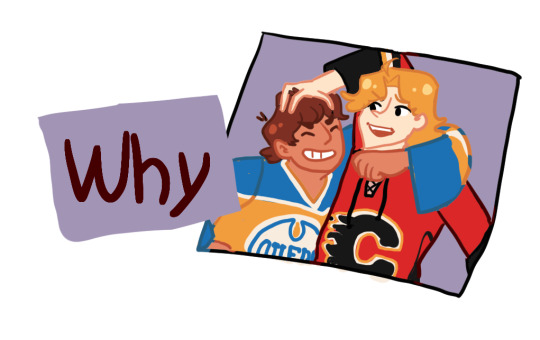
Why: Battling it Out
We’ve been through why I am writing about cities, why I’m looking through a historical lens, and why I am a little obsessed with the problematic image of my home province. I think the final question is: why frame it with the Battle? The Battle of Alberta is an age-old rivalry that transcends the sporting events it is commonly associated with, as I touch on in Chapter 1. It’s the source of a lot of amusement for me when reading headlines and listening to petty jabs whether on the radio or in restaurants. It’s something that dies down with each new generation only to flare up again over some issue or another.
Most of all though, I like to think of it as the start and the end of a healthy relationship, a competitive spirit that makes us strive to be better than each other and better than ourselves. It’s the thesis statement of this project and the wish I have for the future. I don’t mind whether you want to read it as petty or serious, as platonic or romantic, but it’s enduring, it’s constant, and I believe at the end of the day it can be used for good.
That’s all from me for now, I look forward to your questions and comments as well as to writing more meta stuff like this!
Hapo
#aph oc#aph ask blog#aph calgary#aph edmonton#hetalia oc#projectcanada cities#pc: edmonton#pc: calgary#edward murphy#calvin mccall#hapo art#boab meta#boab extras#digital art#clip studio paint
17 notes
·
View notes